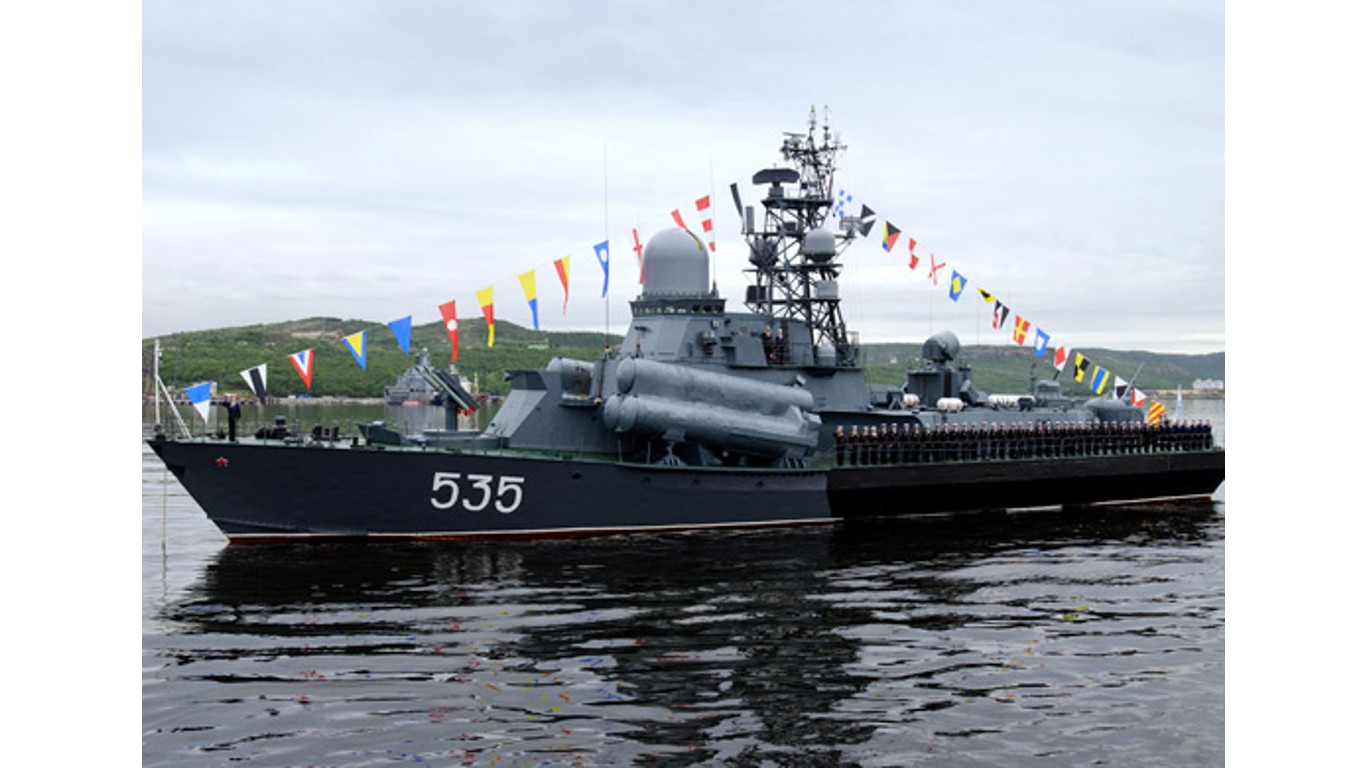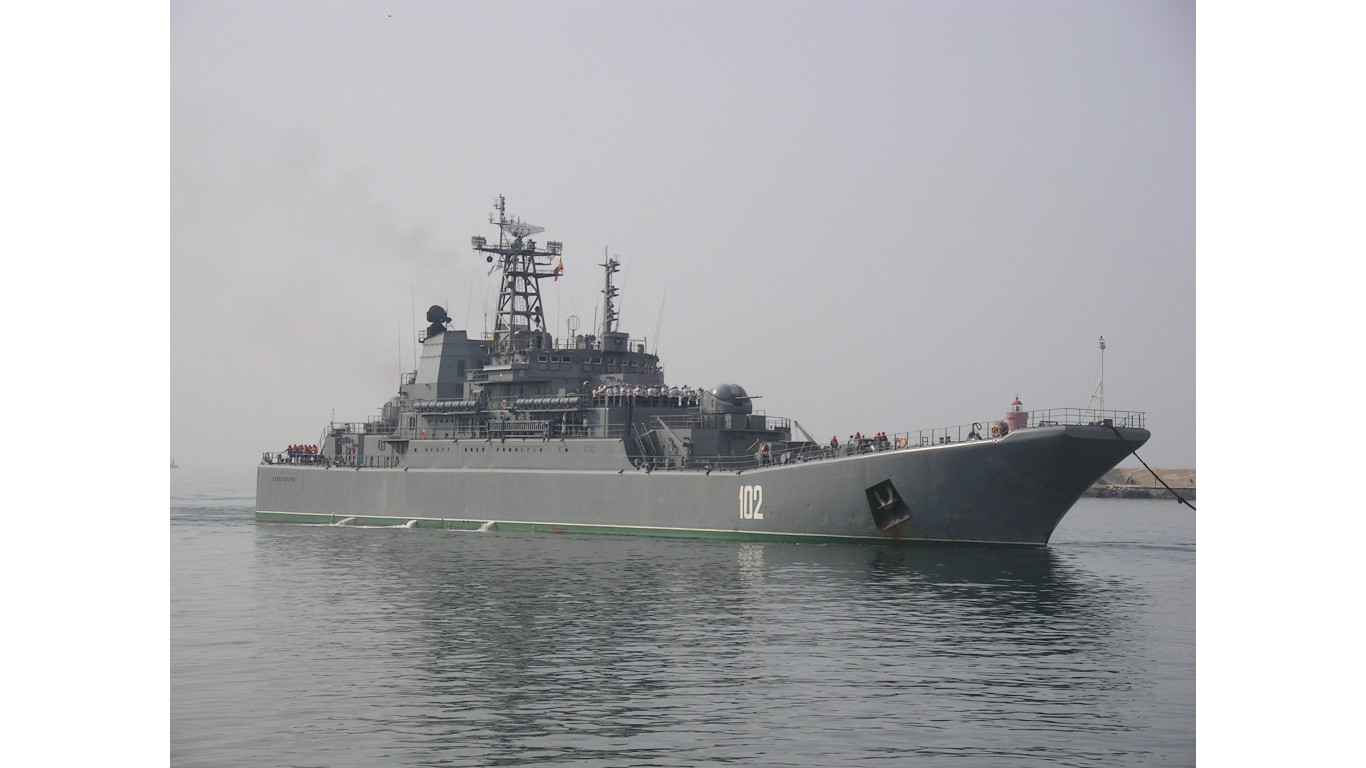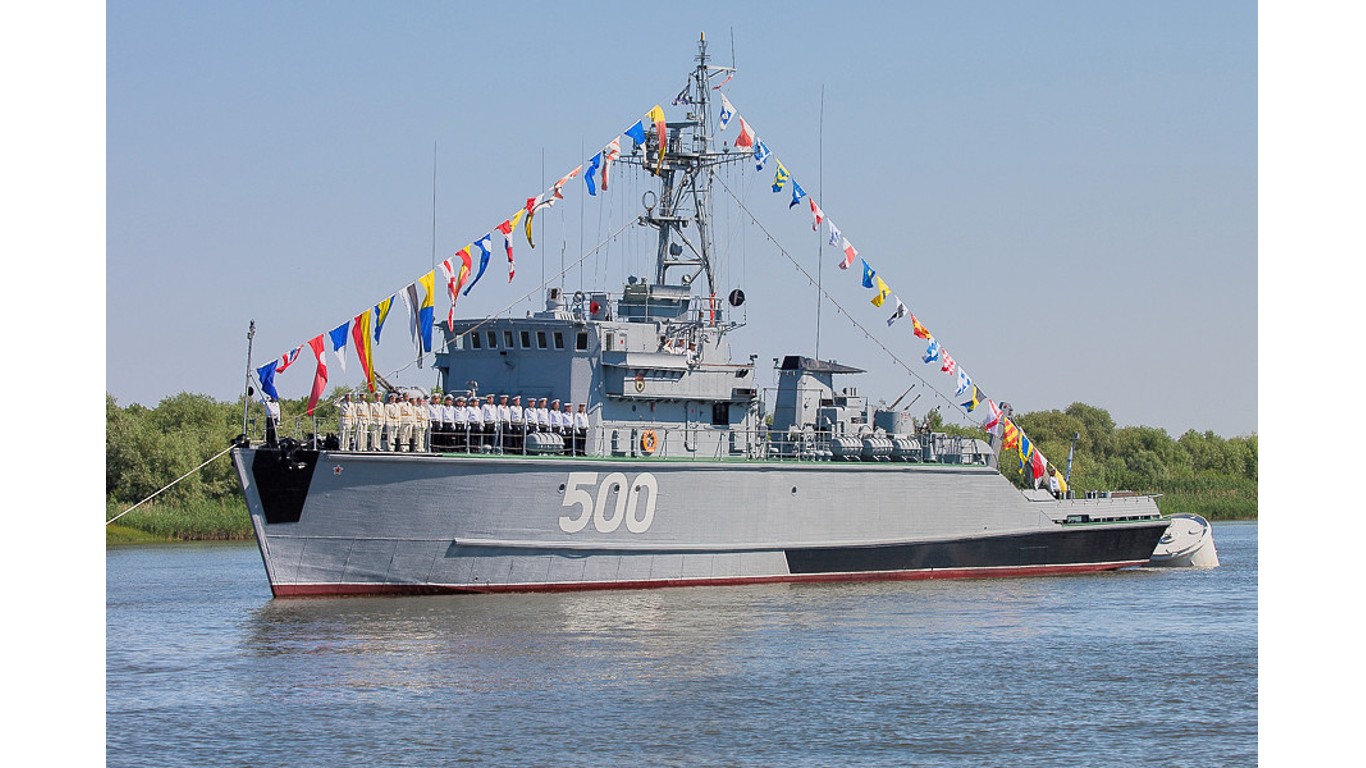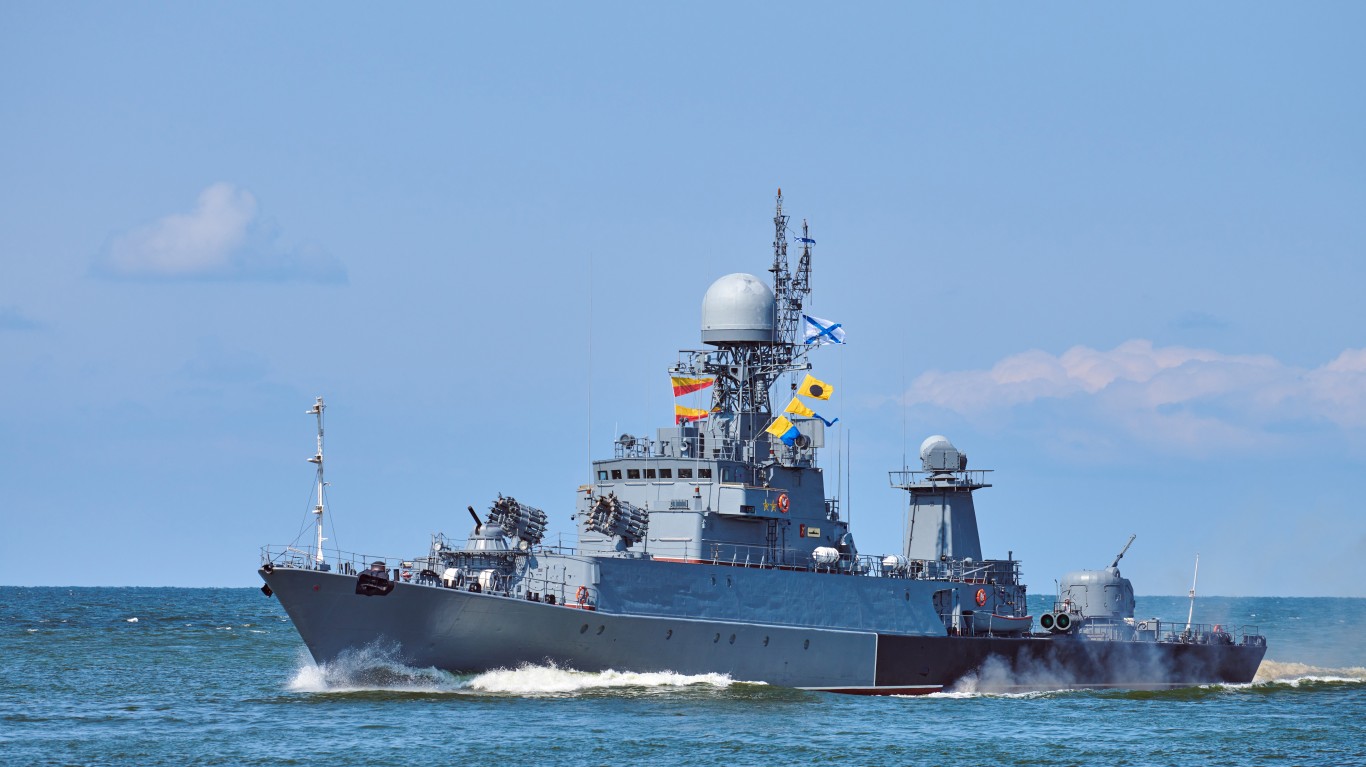
Arguably, the United States has the strongest and most advanced navy on the planet, albeit not the largest by sheer numbers. China and Russia have more watercraft in their navies than the U.S. with Russia actively using its navy against Ukraine.
Ukraine struck at Russia’s Black Sea Fleet Headquarters to devastating effect in late September. Casualties were reported in the dozens. However, there was not any clear indication as to any actual damage to the fleet. (See how Russia’s and NATO’s military capabilities compare.)
To get a better picture of the Russian naval fleet in its entirety, 24/7 Wall St. reviewed military data site World Directory of Modern Military Warships’ directory of all active ships in Russia. Ship and submarine classes are ranked in order of the number of vessels currently in active use by the Russian navy, according to WDMMW. Any ships on order were excluded.
The largest ship in the Russian fleet, and the only one in its class, is the Admiral Kuznetsov, an aircraft carrier measuring roughly 305 meters (1,000 feet) in length, making it one of the largest aircraft carriers in the world. (The U.S.’s Nimitz class aircraft carriers are 1,092 feet in length.) Equipped with an angled flight deck and a ski-jump ramp, the Admiral Kuznetsov can operate a mixture of fixed-wing aircraft and helicopters and carry up to 41 aircraft, including an array of fighter jets and helicopters. The carrier is powered by a combination of traditional oil-fired boilers and gas turbines, providing it with a maximum speed of around 30 knots.
Another notable class is the Admiral Gorshkov guided-missile frigates. These frigates are designed for multi-purpose operations and are equipped with modern missile systems, anti-ship and anti-submarine capabilities, and advanced radar systems, according to Military Factory. Although these are not the fastest ships in the fleet, with a maximum speed of roughly 20 knots, or 23 mph, they are very well armed with turreted deck guns, anti-aircraft missiles, and even torpedoes. This class is also one of the newest and more advanced to join the Russian fleet.
Russia’s submarines include the Borei class, which is the newest generation of ballistic missile attack submarines. These nuclear-powered vessels possess immense destructive power due to their arsenal of Bulava missiles. These missiles are loaded with multiple nuclear warheads and have a range of 5,000 miles. Although there are only a handful of these submarines in service at the moment, more are on order. (Here are the 20 biggest bombs in Russia’s military arsenal.)
One notable fact that stands out about Russia’s fleet compared to other major world powers is that most of the warships and submarines have been in service for at least a few decades. The median hull age of the fleet is around 30 years, according to WDMMW. For comparison, the median hull age of the U.S. fleet is just over 23 years. The newer classes of submarines, frigates, and corvettes in Russia’s fleet have only been introduced in the past decade or so and therefore do not account for a large portion of the fleet.
Here is a look at every class of warship and submarine in Russia’s fleet.
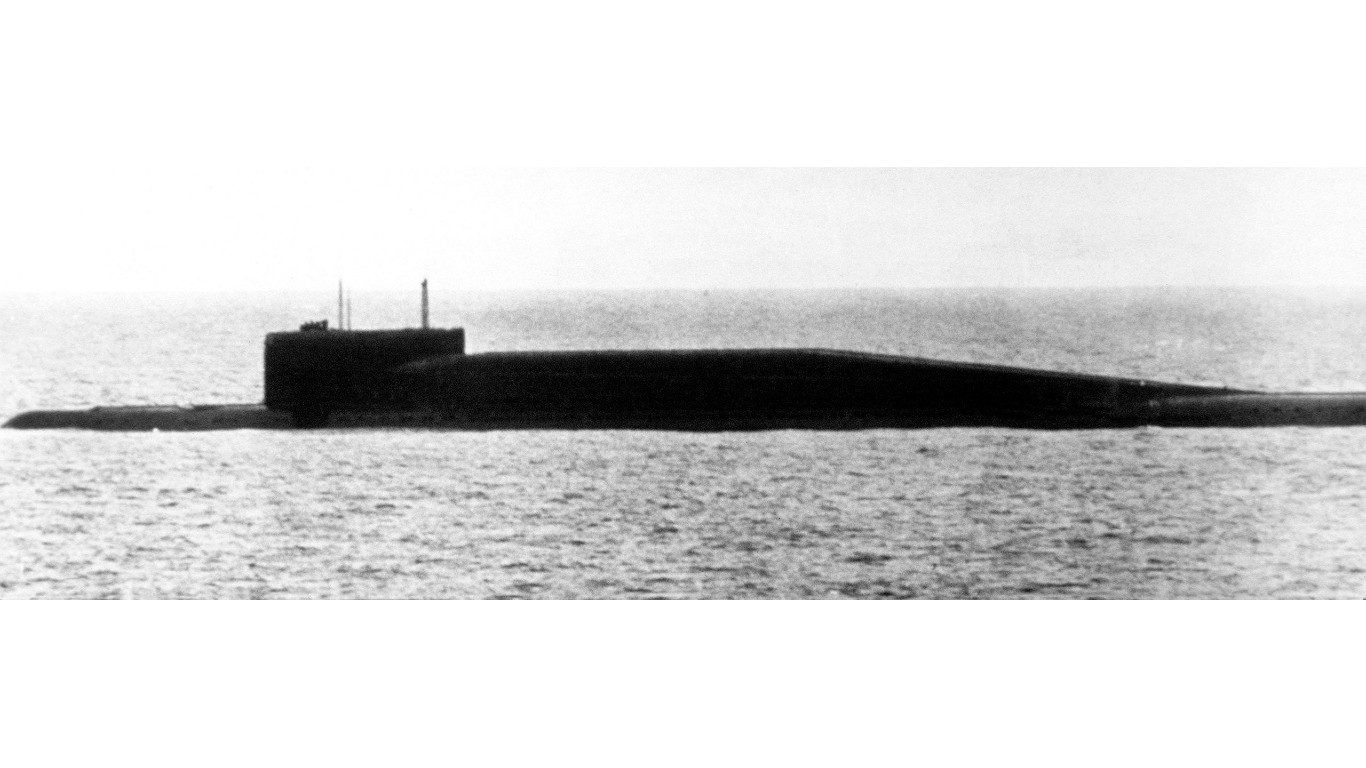
44. Delta III
> Number in class: 1
> Type: Nuclear-powered ballistic missile attack submarine
> Year introduced: 1976
[in-text-ad]
43. Gremyashchiy
> Number in class: 1
> Type: Guided-missile stealth corvette warship
> Year introduced: 2018
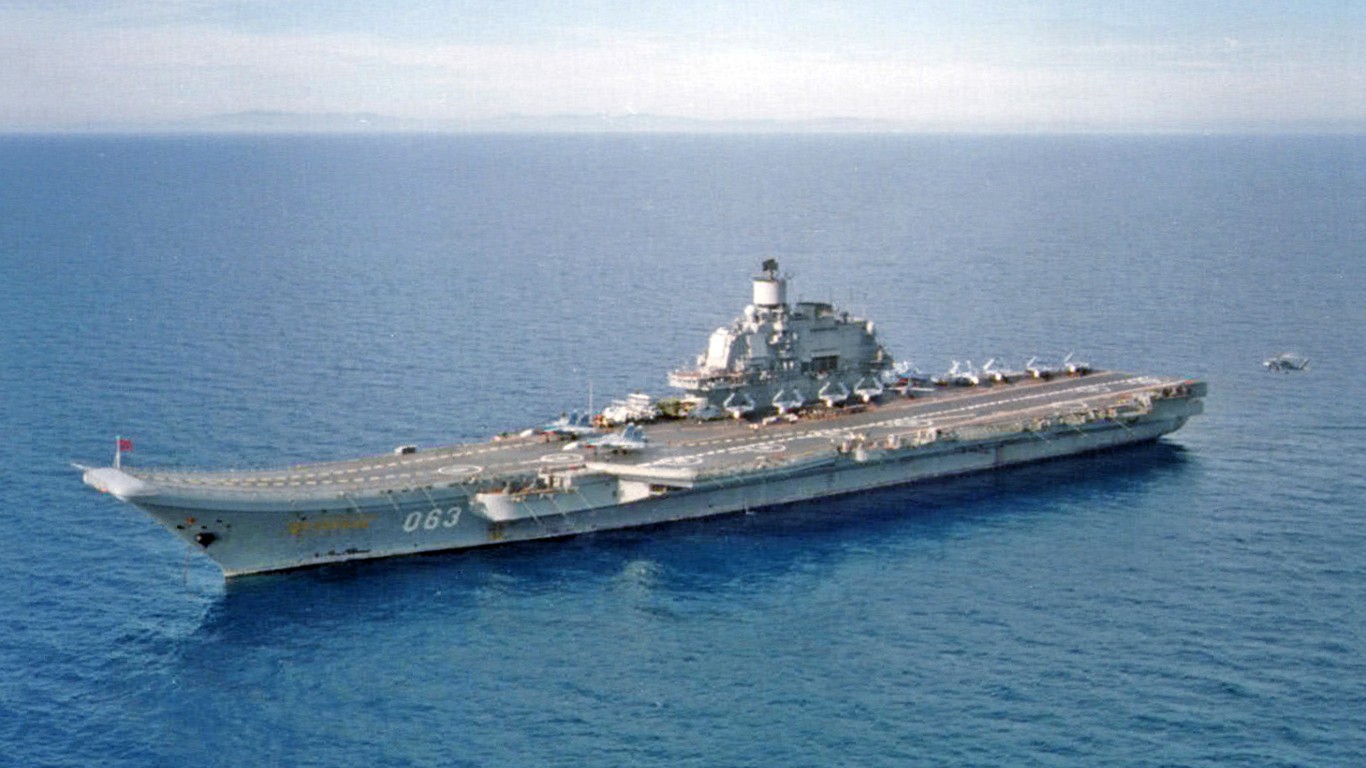
42. Kuznetsov
> Number in class: 1
> Type: Conventionally-powered aircraft carrier
> Year introduced: 1991
41. Lada
> Number in class: 1
> Type: Diesel-electric attack submarine
> Year introduced: 2010
[in-text-ad-2]
40. Typhoon
> Number in class: 1
> Type: Nuclear-powered ballistic missile submarine
> Year introduced: 1981
[in-text-ad]
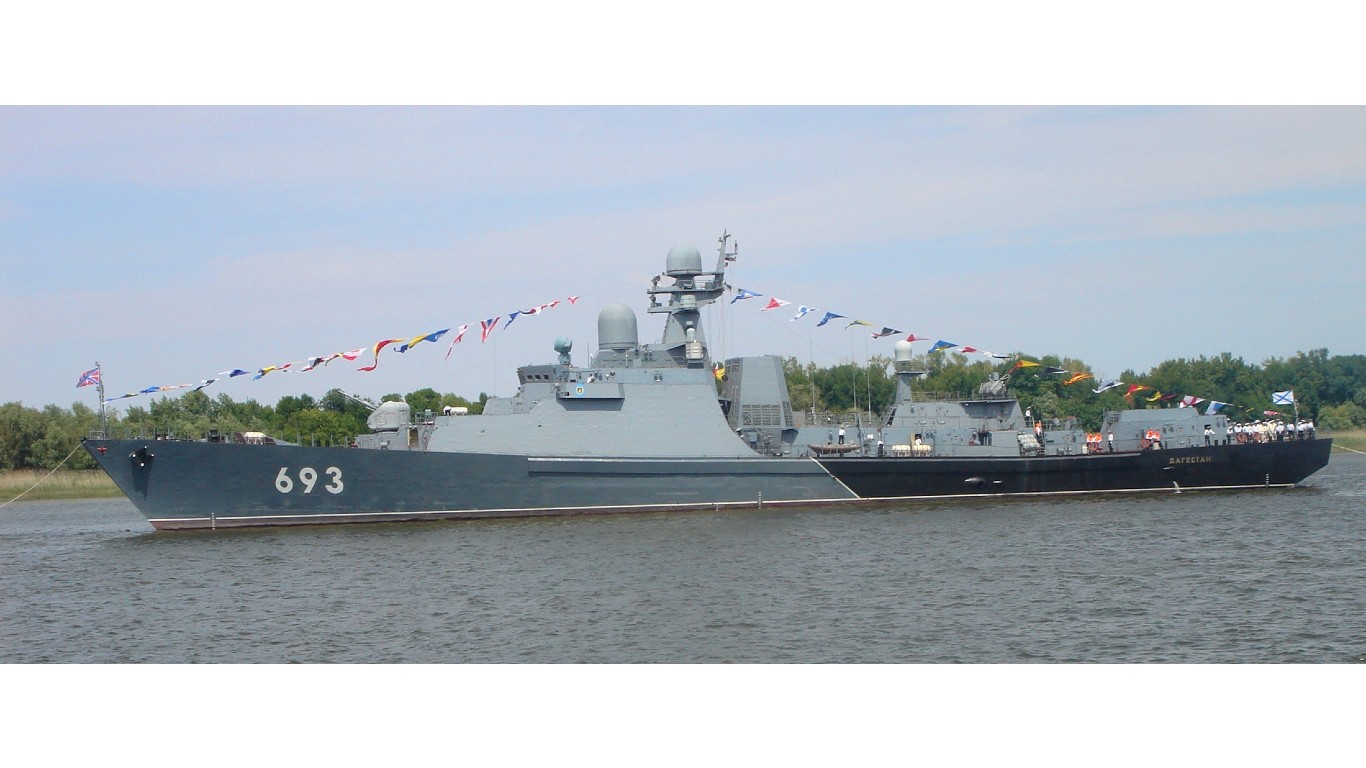
38. Gepard
> Number in class: 2
> Type: Guided-missile frigate
> Year introduced: 2003
37. Gorshkov
> Number in class: 2
> Type: Guided-missile frigate
> Year introduced: 2018
[in-text-ad-2]
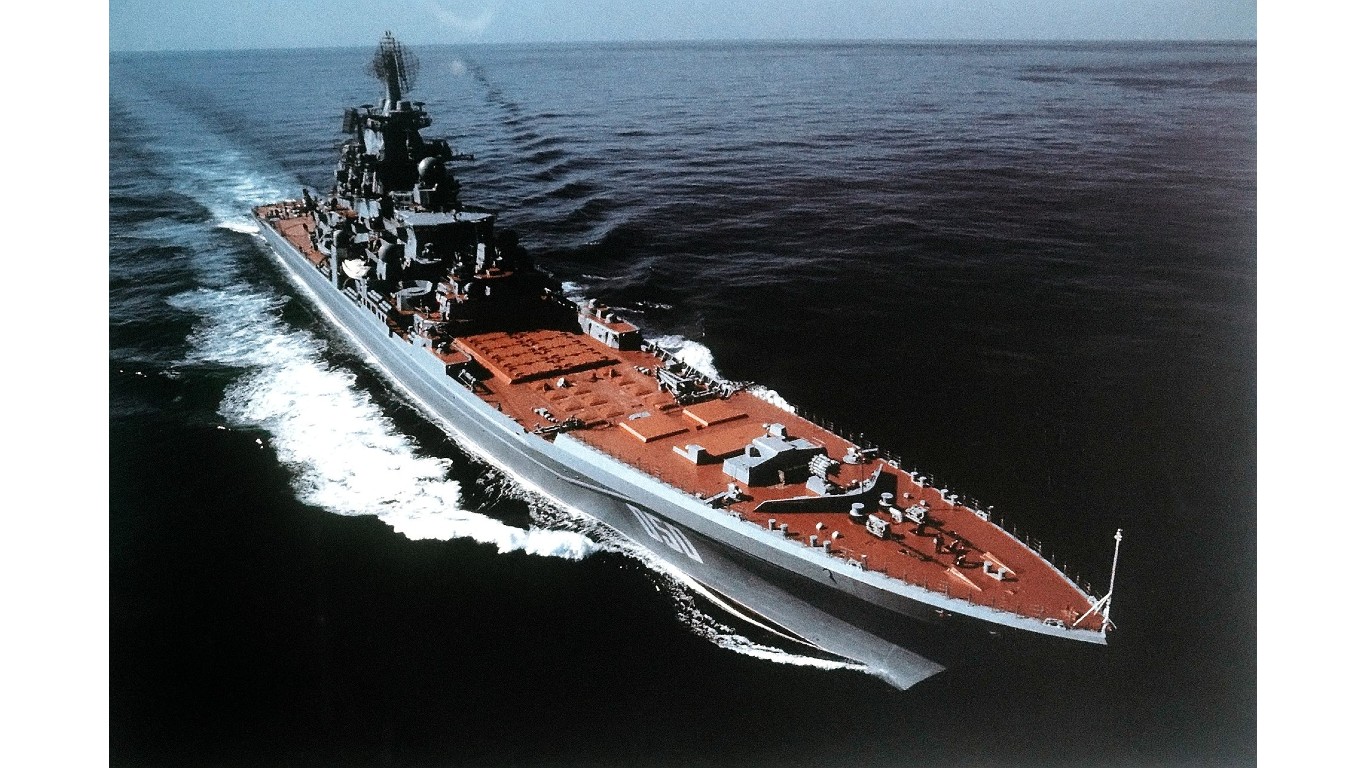
34. Kirov
> Number in class: 2
> Type: Nuclear-powered guided-missile battlecruiser
> Year introduced: 1980
[in-text-ad]
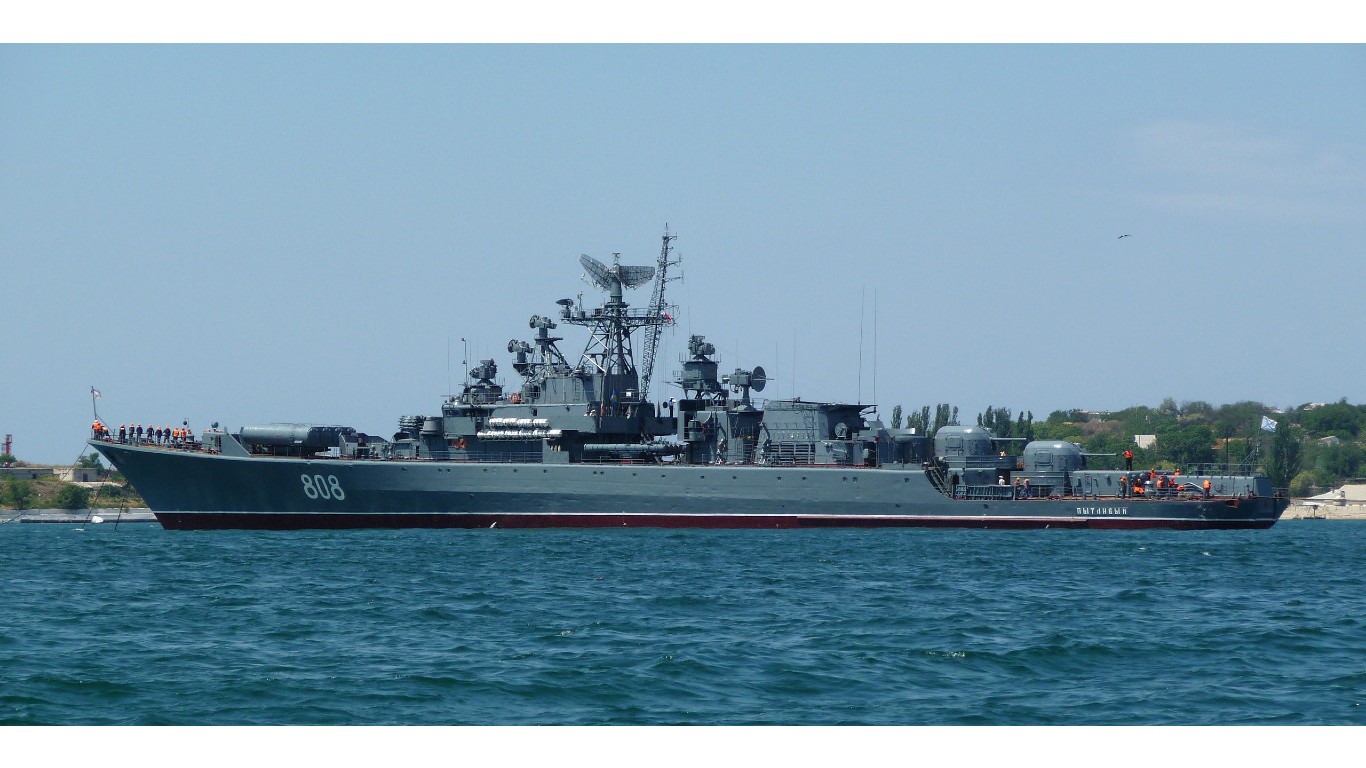
33. Krivak
> Number in class: 2
> Type: Guided-missile frigate
> Year introduced: 1970
32. Neustrashimyy
> Number in class: 2
> Type: Multirole frigate
> Year introduced: 1986
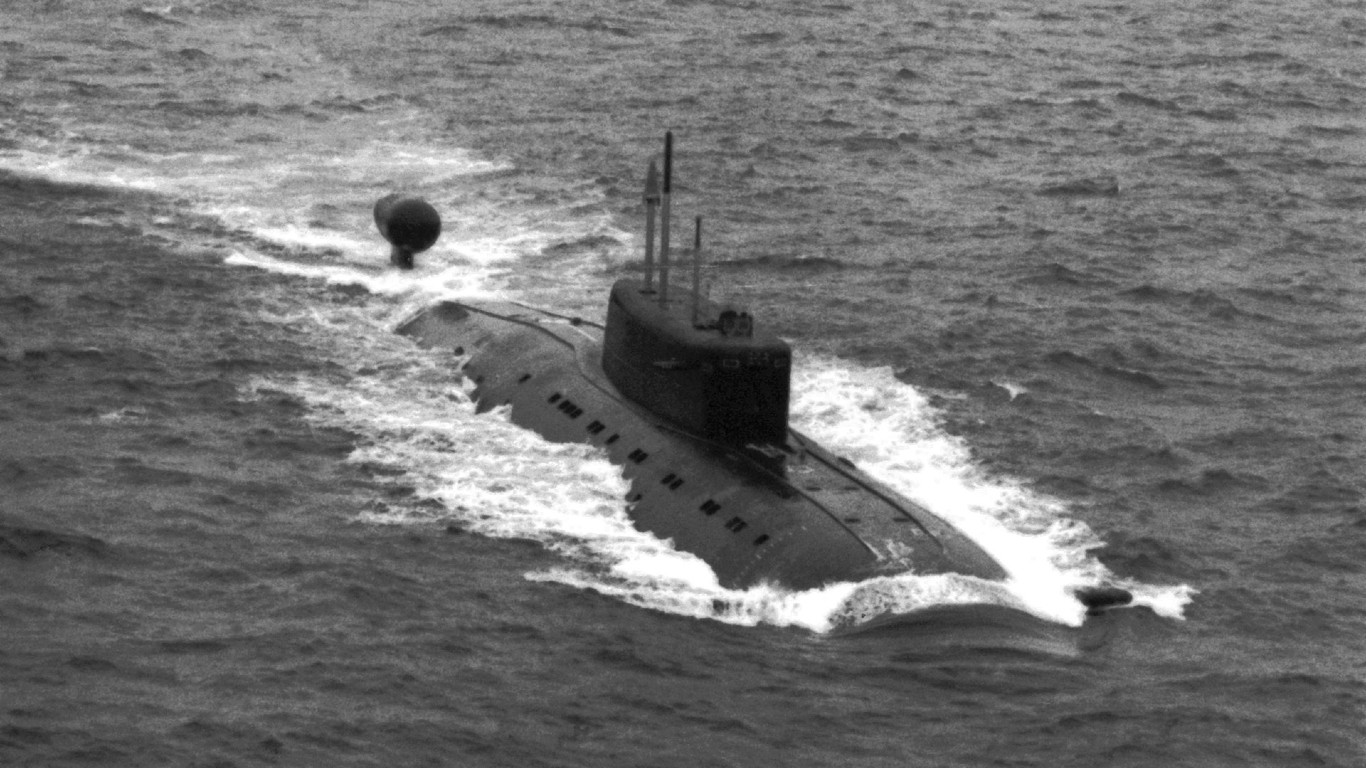
31. Sierra II
> Number in class: 2
> Type: Nuclear-powered attack submarine
> Year introduced: 1984
[in-text-ad-2]
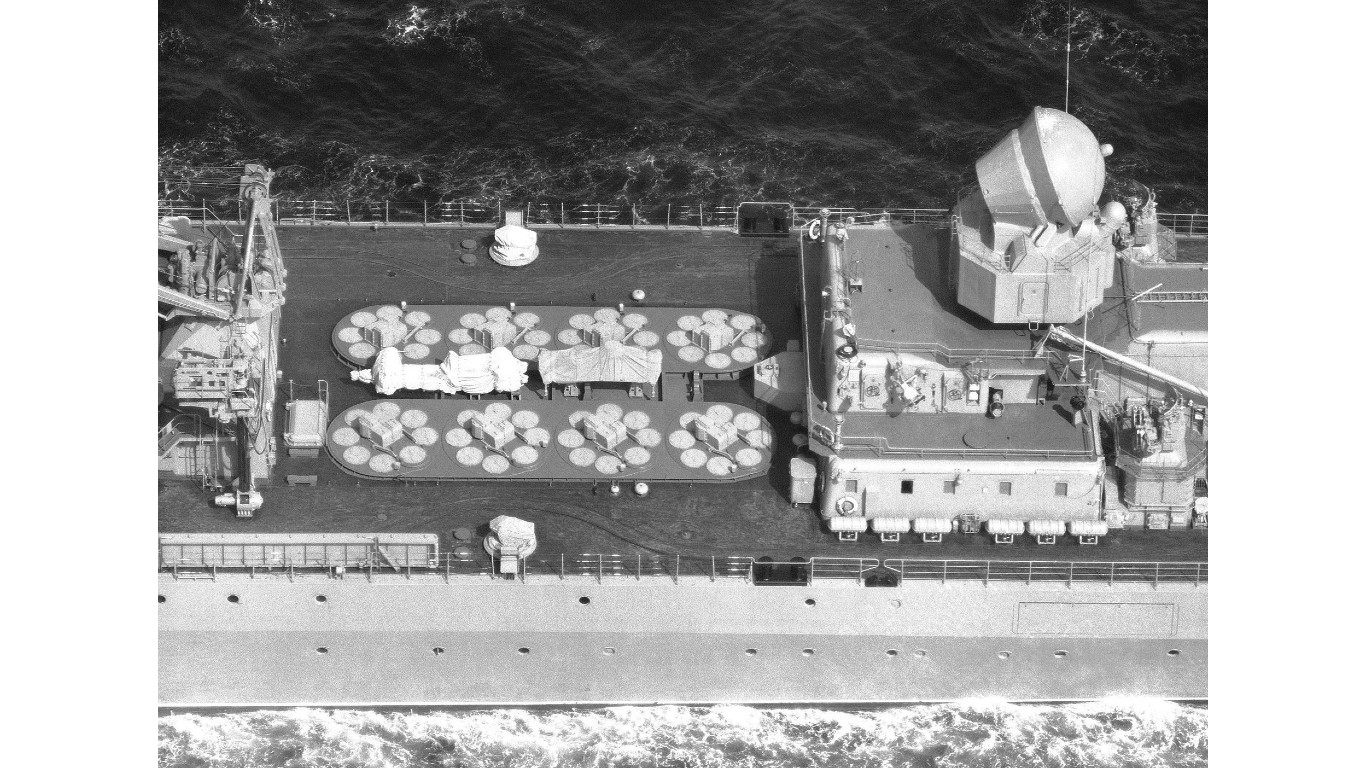
30. Slava
> Number in class: 2
> Type: Guided-missile cruiser
> Year introduced: 1982
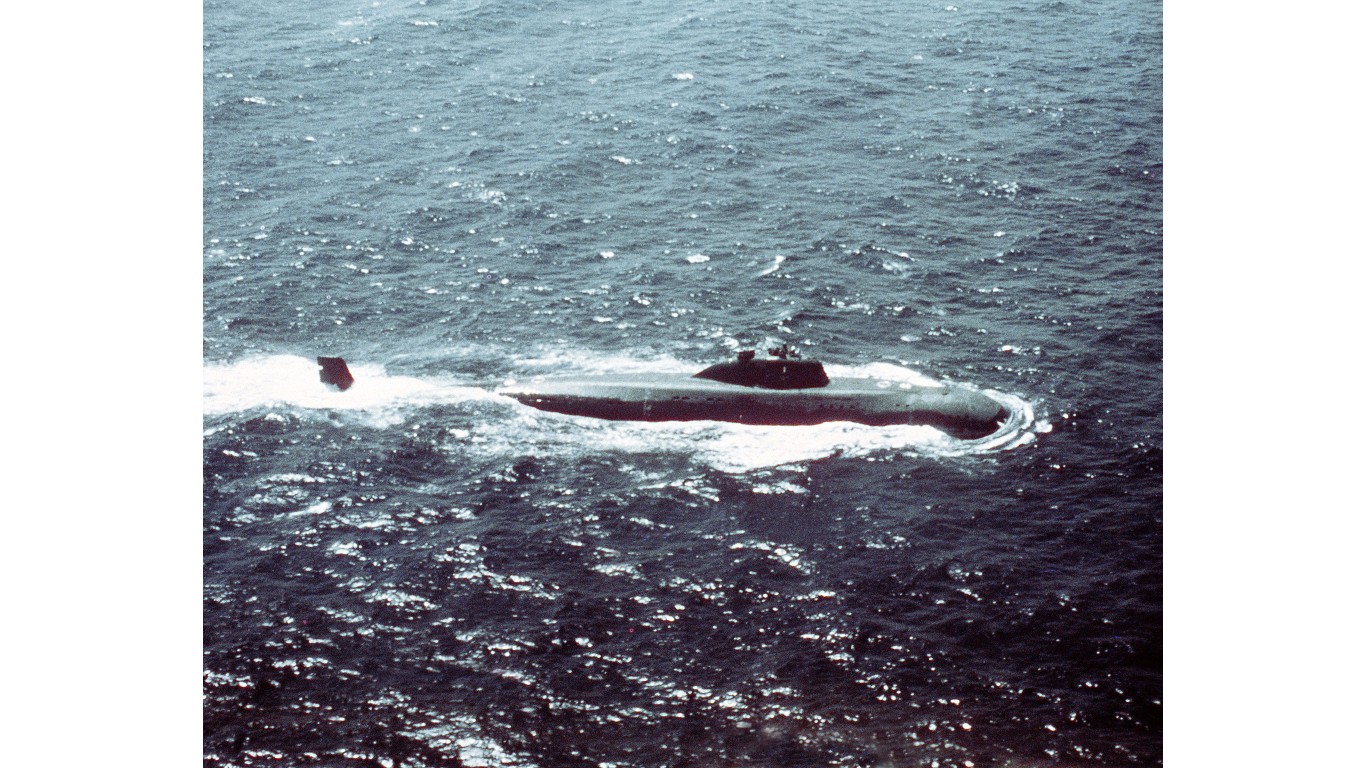
29. Victor
> Number in class: 2
> Type: Nuclear-powered attack submarine
> Year introduced: 1967
[in-text-ad]
28. Yasen
> Number in class: 2
> Type: Nuclear-powered cruise missile submarines
> Year introduced: 2013
[in-text-ad-2]
25. Karakurt
> Number in class: 3
> Type: Guided-missile corvette
> Year introduced: 2018
[in-text-ad]
23. Alligator
> Number in class: 4
> Type: Amphibious assault
> Year introduced: 1965
22. Borei
> Number in class: 4
> Type: Nuclear-powered ballistic missile submarine
> Year introduced: 2013
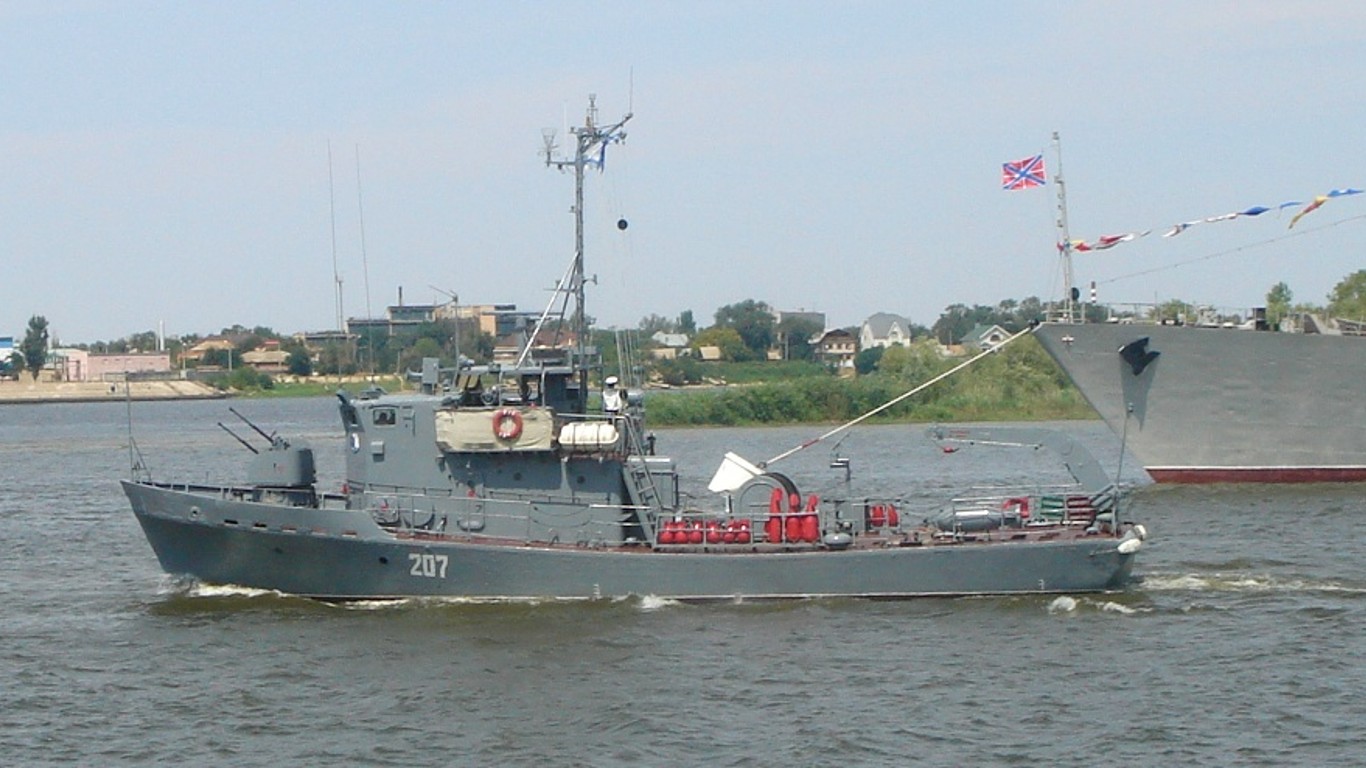
21. Korund
> Number in class: 4
> Type: Minesweeper
> Year introduced: 1967
[in-text-ad-2]
20. Shmel
> Number in class: 4
> Type: Armored artillery gunboat
> Year introduced: 1967
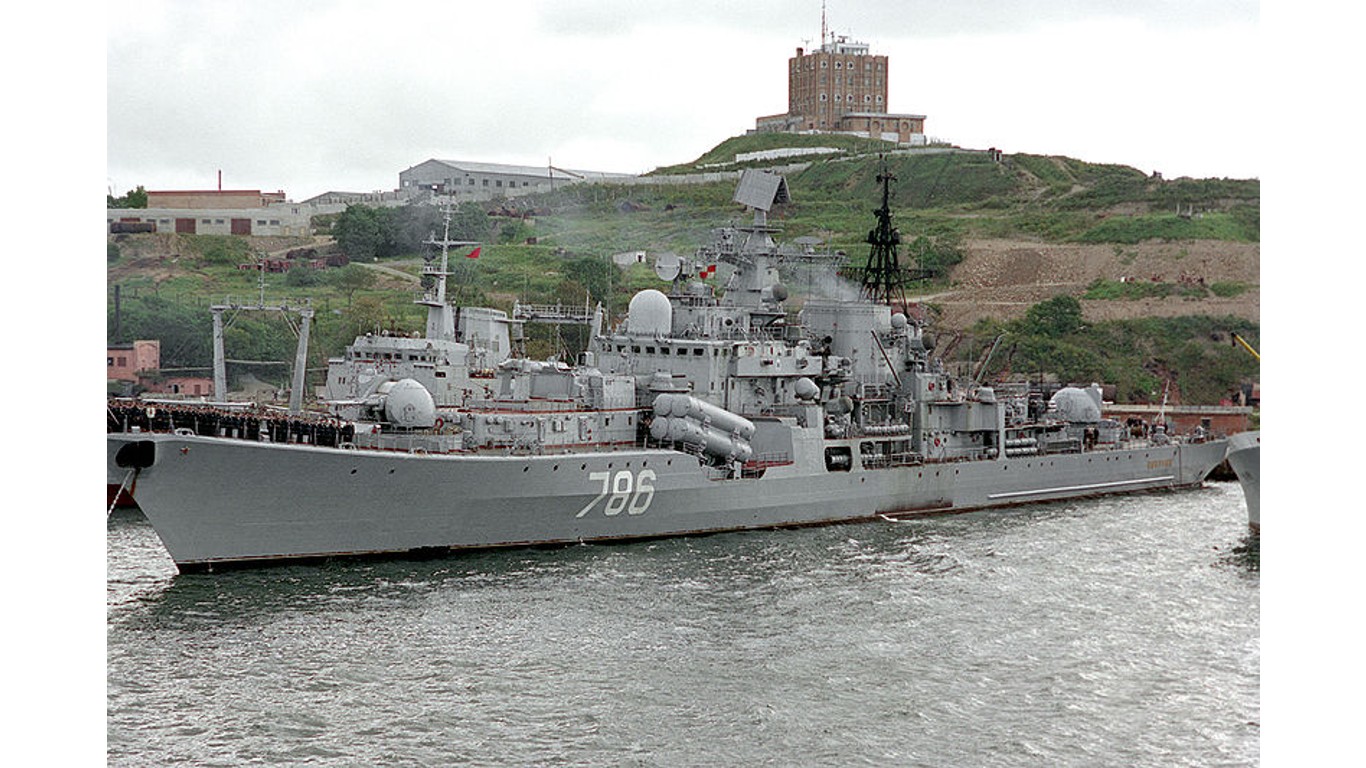
19. Sovremenny
> Number in class: 4
> Type: Anti-aircraft guided-missile destroyer
> Year introduced: 1980
[in-text-ad]
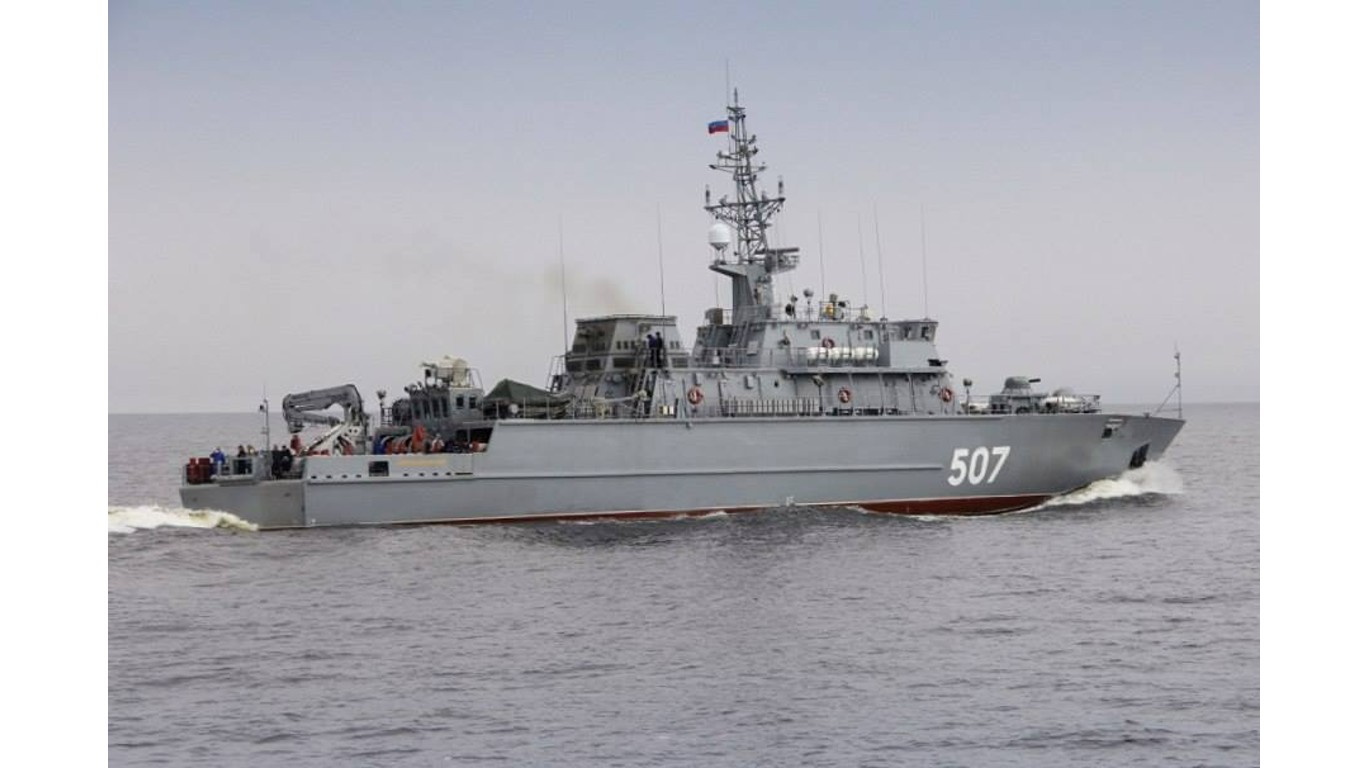
18. Alexandrit
> Number in class: 5
> Type: Minesweeper
> Year introduced: 2016
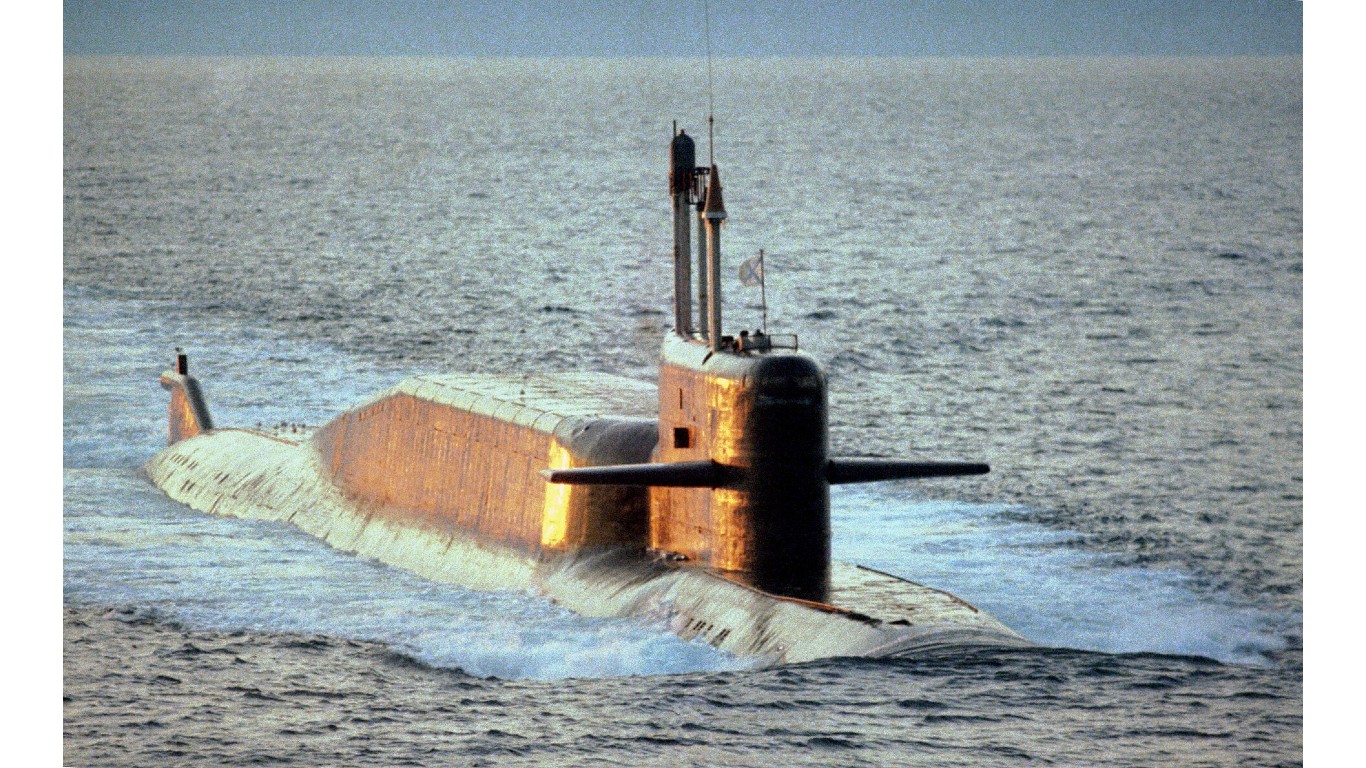
17. Delta IV
> Number in class: 6
> Type: Nuclear-powered ballistic missile attack submarine
> Year introduced: 1984
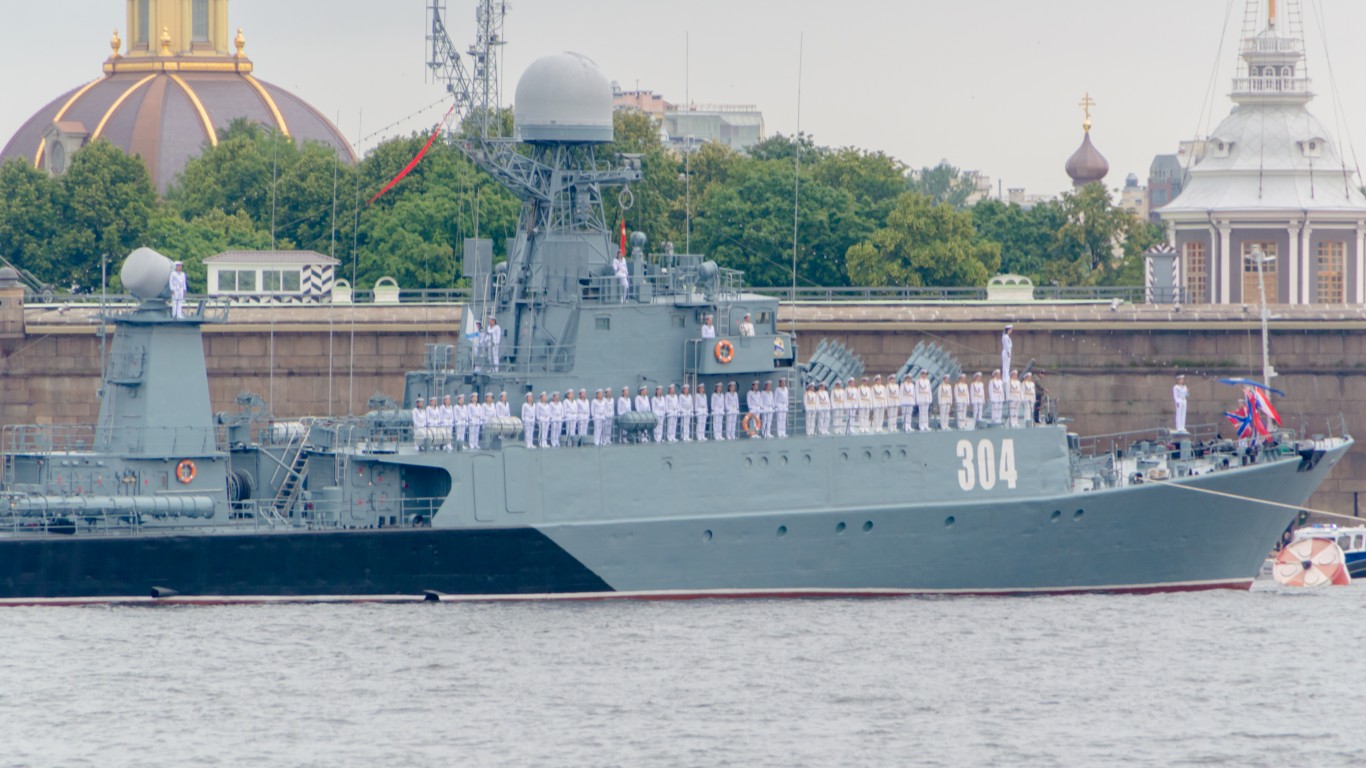
16. Parchim
> Number in class: 6
> Type: Anti-submarine corvette
> Year introduced: 1993
[in-text-ad-2]
15. Lida
> Number in class: 7
> Type: Minesweeper
> Year introduced: 1989
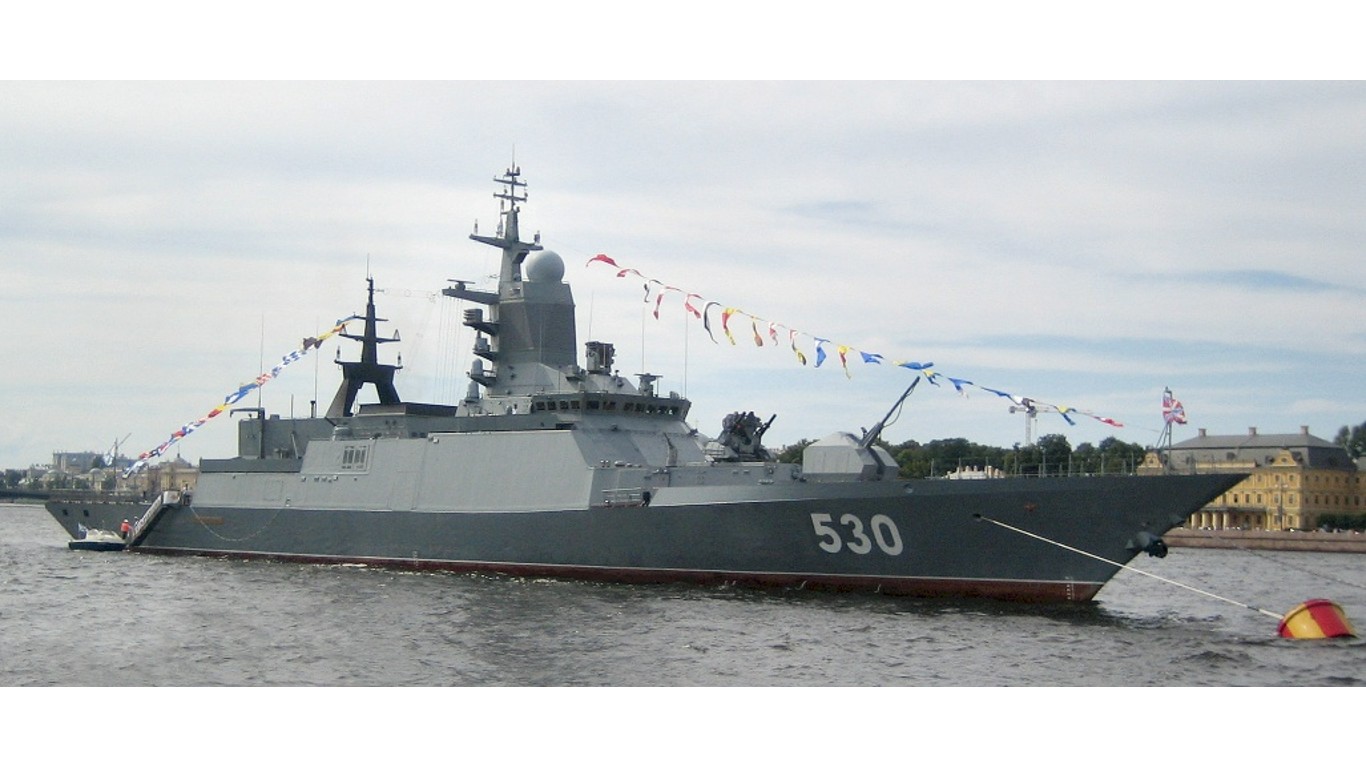
14. Steregushchiy
> Number in class: 7
> Type: Guided-missile corvette
> Year introduced: 2008
[in-text-ad]
13. Natya
> Number in class: 8
> Type: Minesweeper
> Year introduced: 1970
12. Oscar II
> Number in class: 8
> Type: Nuclear-powered cruise missile submarines
> Year introduced: 1980
11. Udaloy
> Number in class: 8
> Type: Anti-submarine guided-missile destroyer
> Year introduced: 1980
[in-text-ad-2]
10. Akula
> Number in class: 10
> Type: Nuclear-powered attack submarine
> Year introduced: 1984
9. Buyan M
> Number in class: 9
> Type: Guided-missile corvette
> Year introduced: 2006
[in-text-ad]
8. Kilo II
> Number in class: 9
> Type: Attack submarine
> Year introduced: 1980
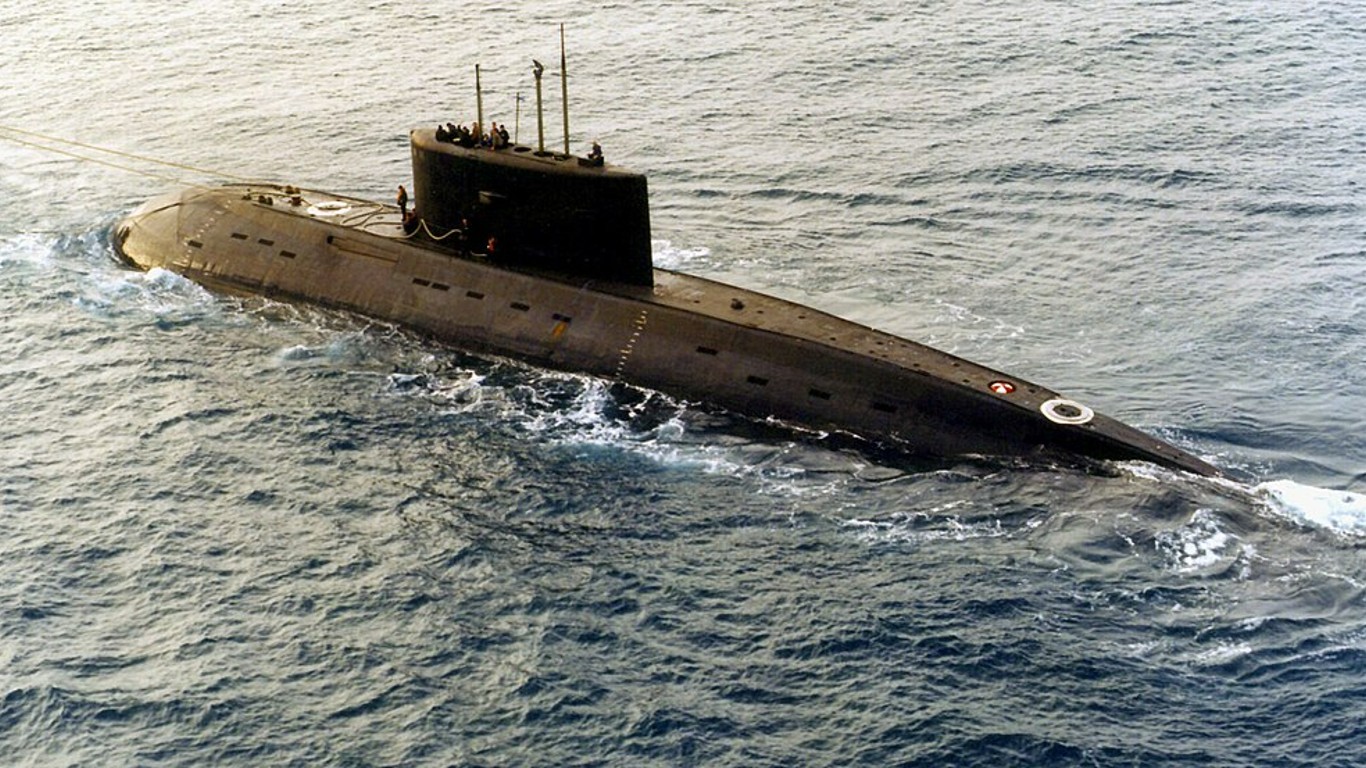
6. Kilo
> Number in class: 12
> Type: Attack submarine
> Year introduced: 2014
[in-text-ad-2]
5. Ropucha
> Number in class: 15
> Type: Amphibious assault
> Year introduced: 1974
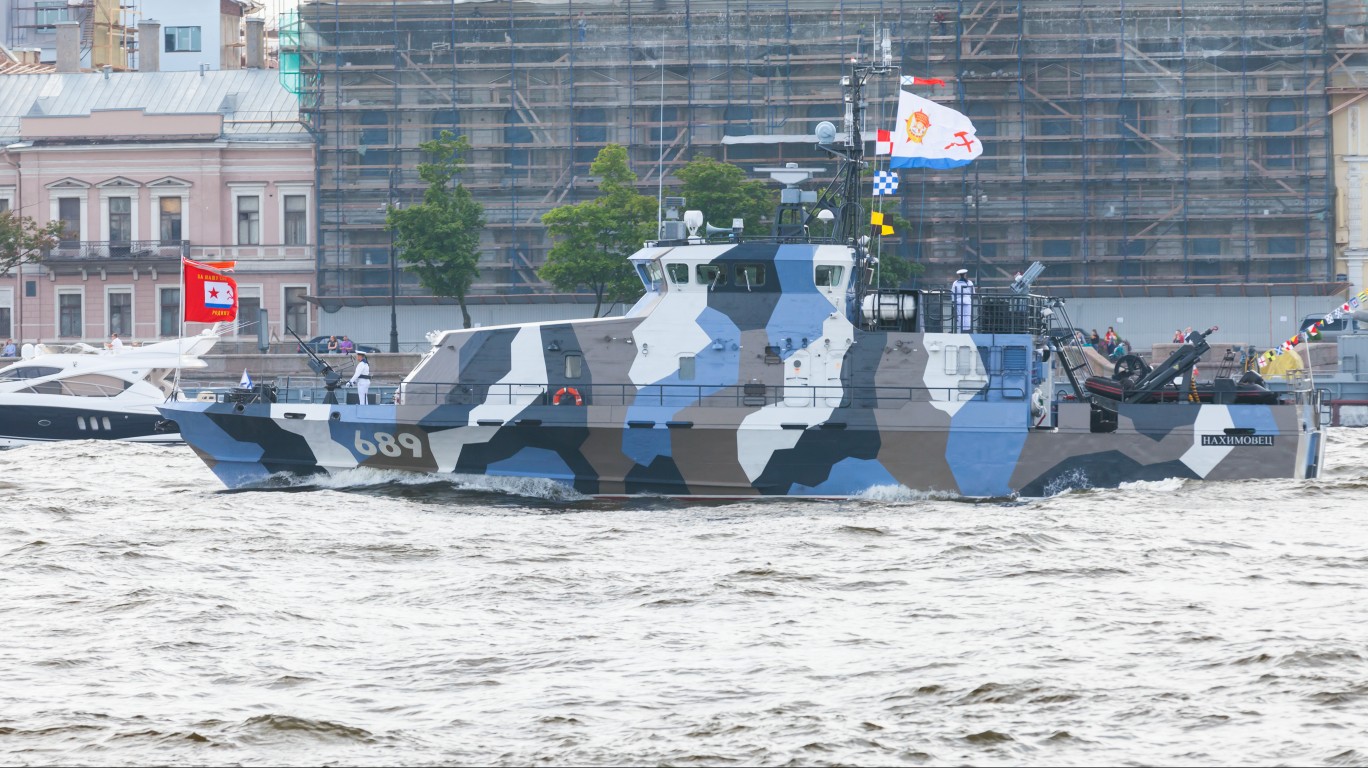
4. Grachonok
> Number in class: 20
> Type: Anti-saboteurship
> Year introduced: 2009
[in-text-ad]
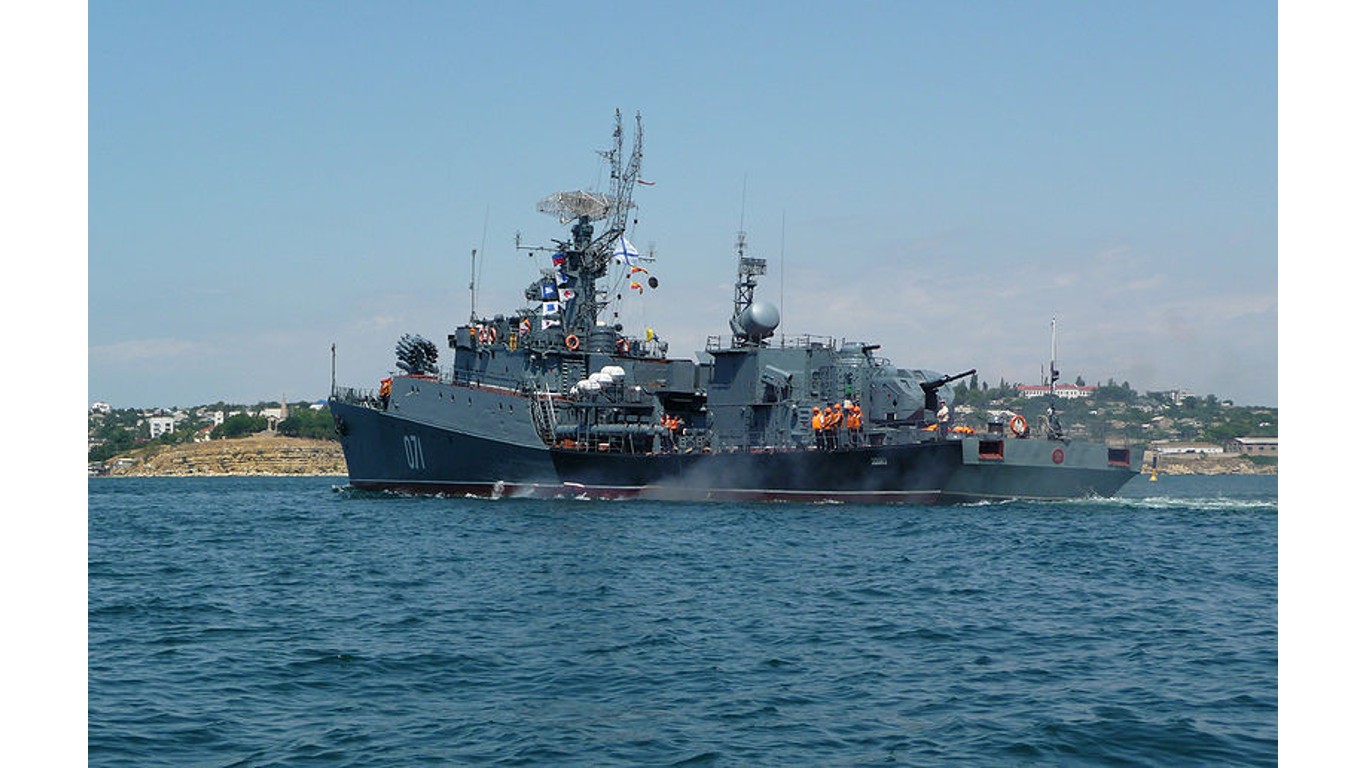
3. Grisha
> Number in class: 20
> Type: Anti-submarine corvette
> Year introduced: 1970
2. Eridan
> Number in class: 22
> Type: Minesweeper
> Year introduced: 1983
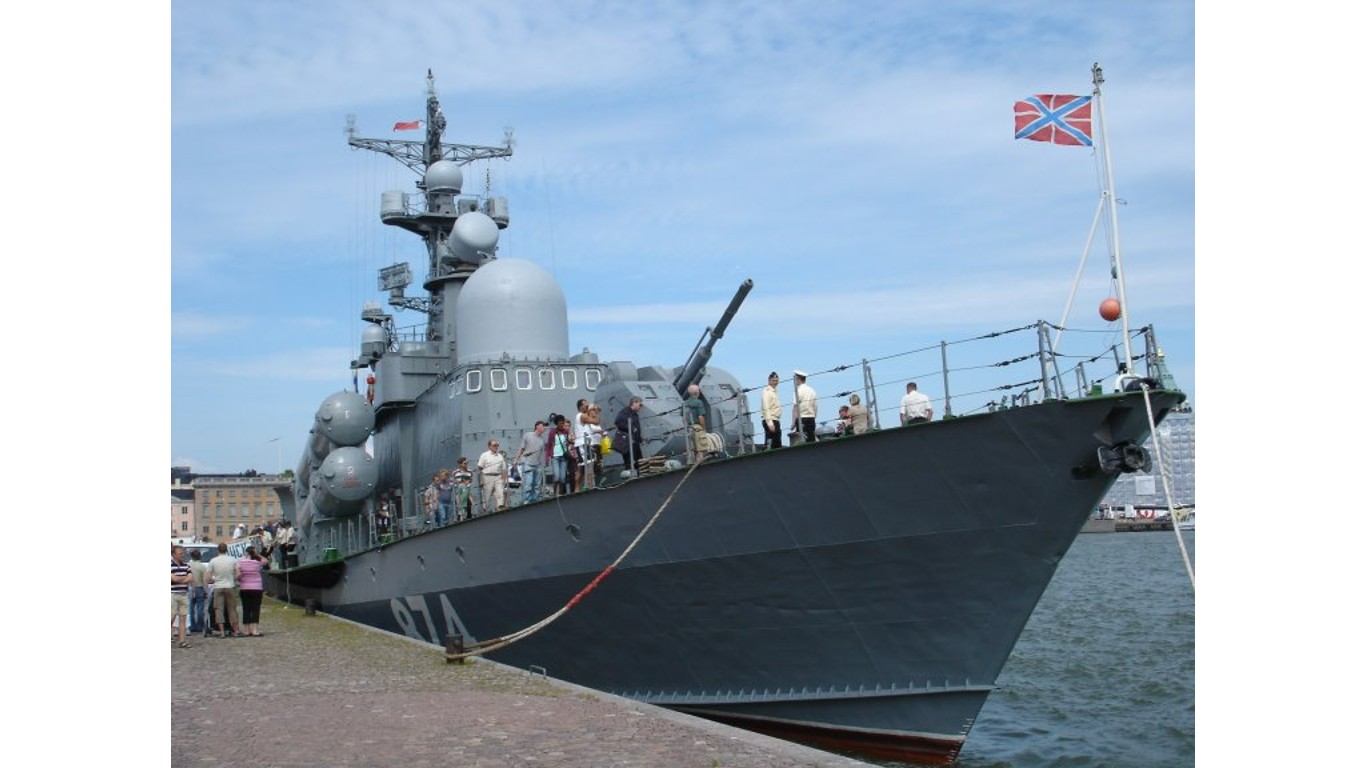
1. Tarantul
> Number in class: 22
> Type: Guided missile corvette
> Year introduced: 1977
It’s Your Money, Your Future—Own It (sponsor)
Retirement can be daunting, but it doesn’t need to be.
Imagine having an expert in your corner to help you with your financial goals. Someone to help you determine if you’re ahead, behind, or right on track. With SmartAsset, that’s not just a dream—it’s reality. This free tool connects you with pre-screened financial advisors who work in your best interests. It’s quick, it’s easy, so take the leap today and start planning smarter!
Don’t waste another minute; get started right here and help your retirement dreams become a retirement reality.
Thank you for reading! Have some feedback for us?
Contact the 24/7 Wall St. editorial team.
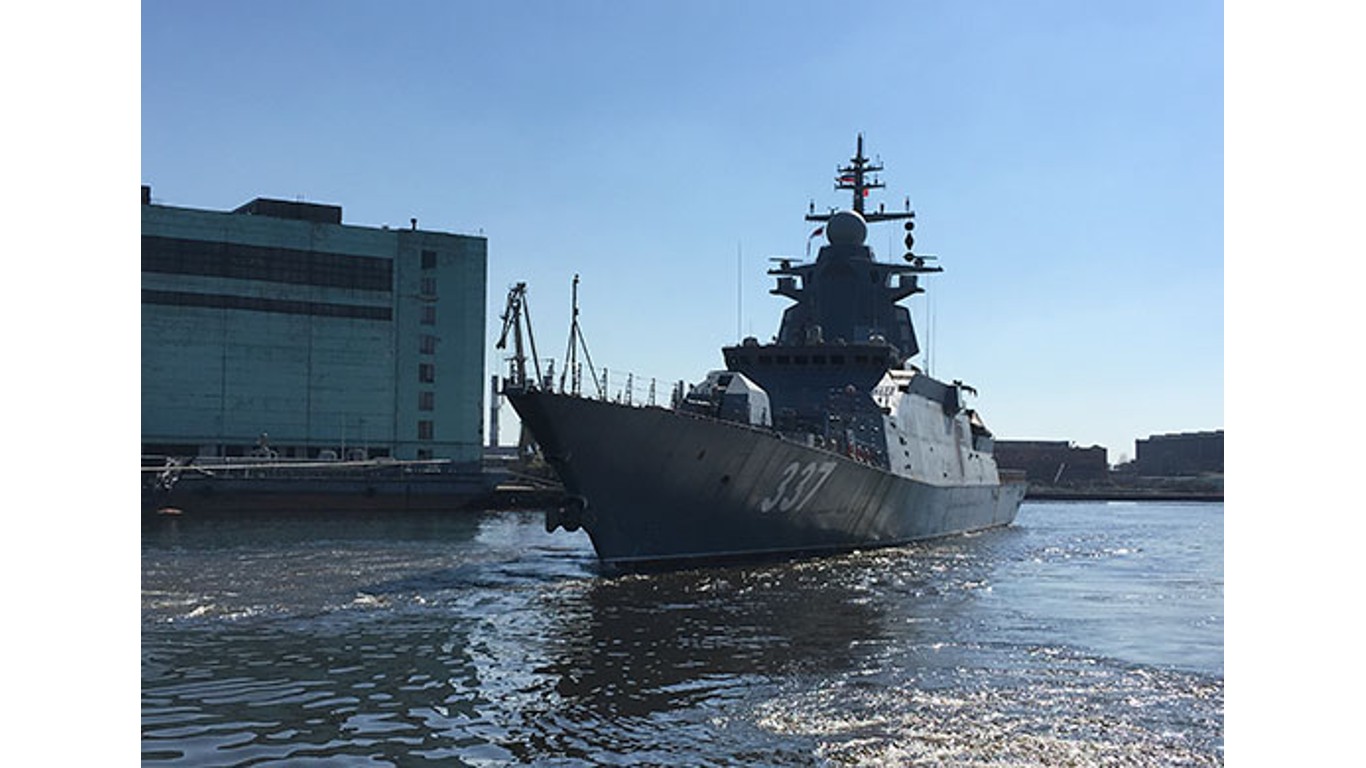
 24/7 Wall St.
24/7 Wall St.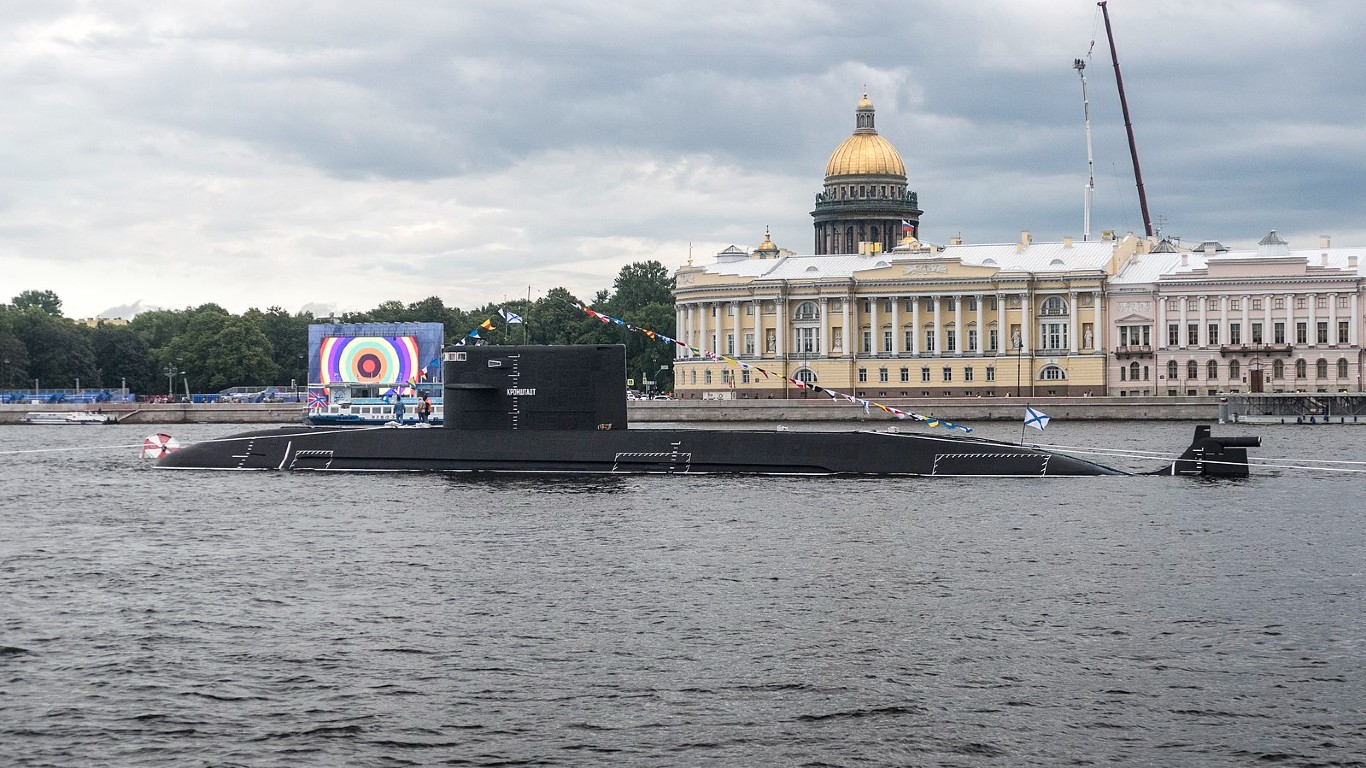
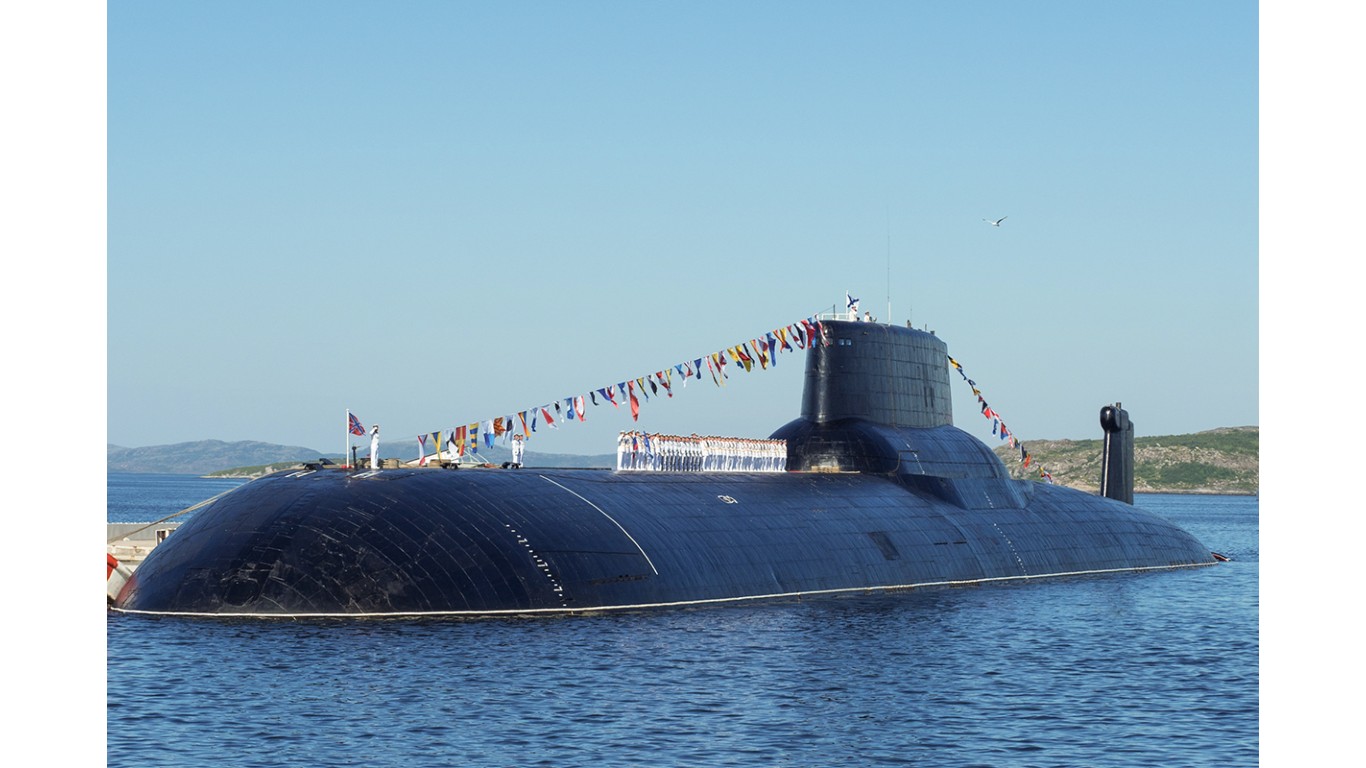
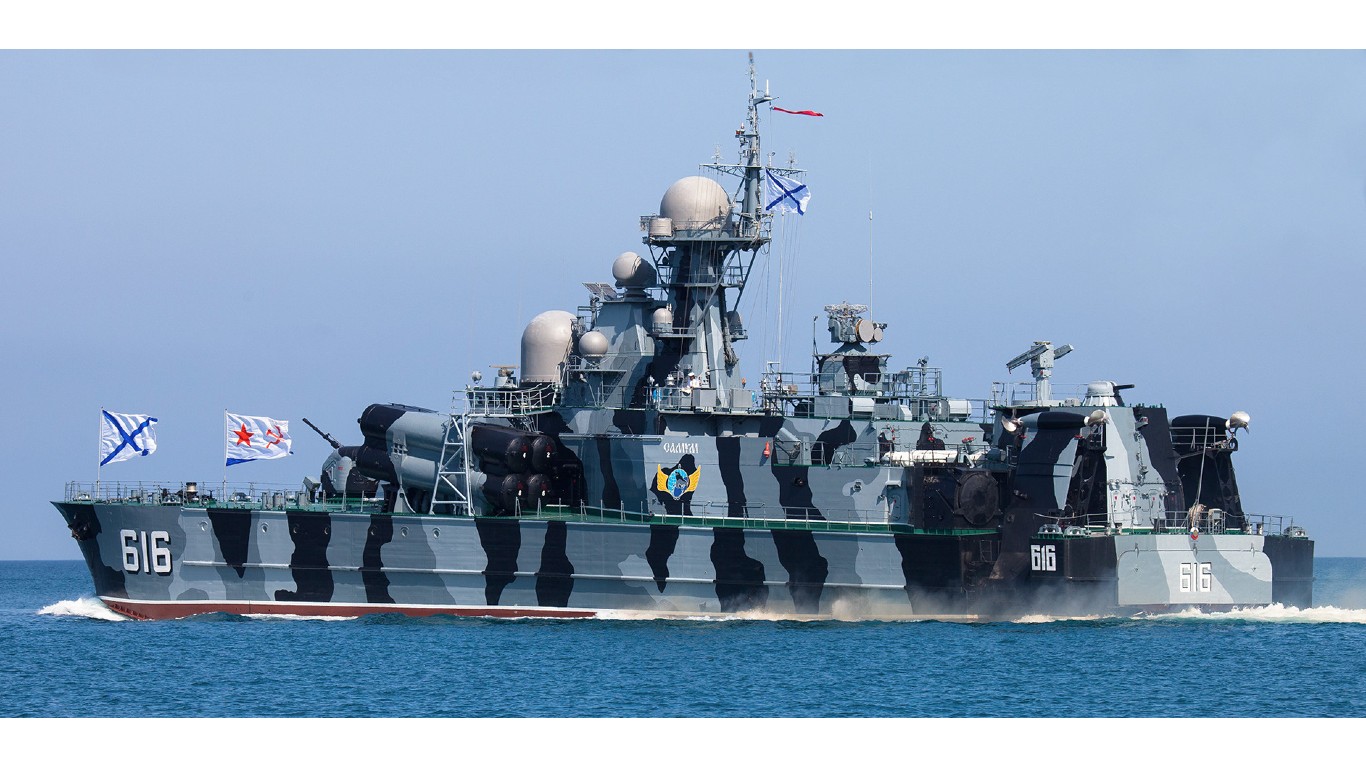
 24/7 Wall St.
24/7 Wall St.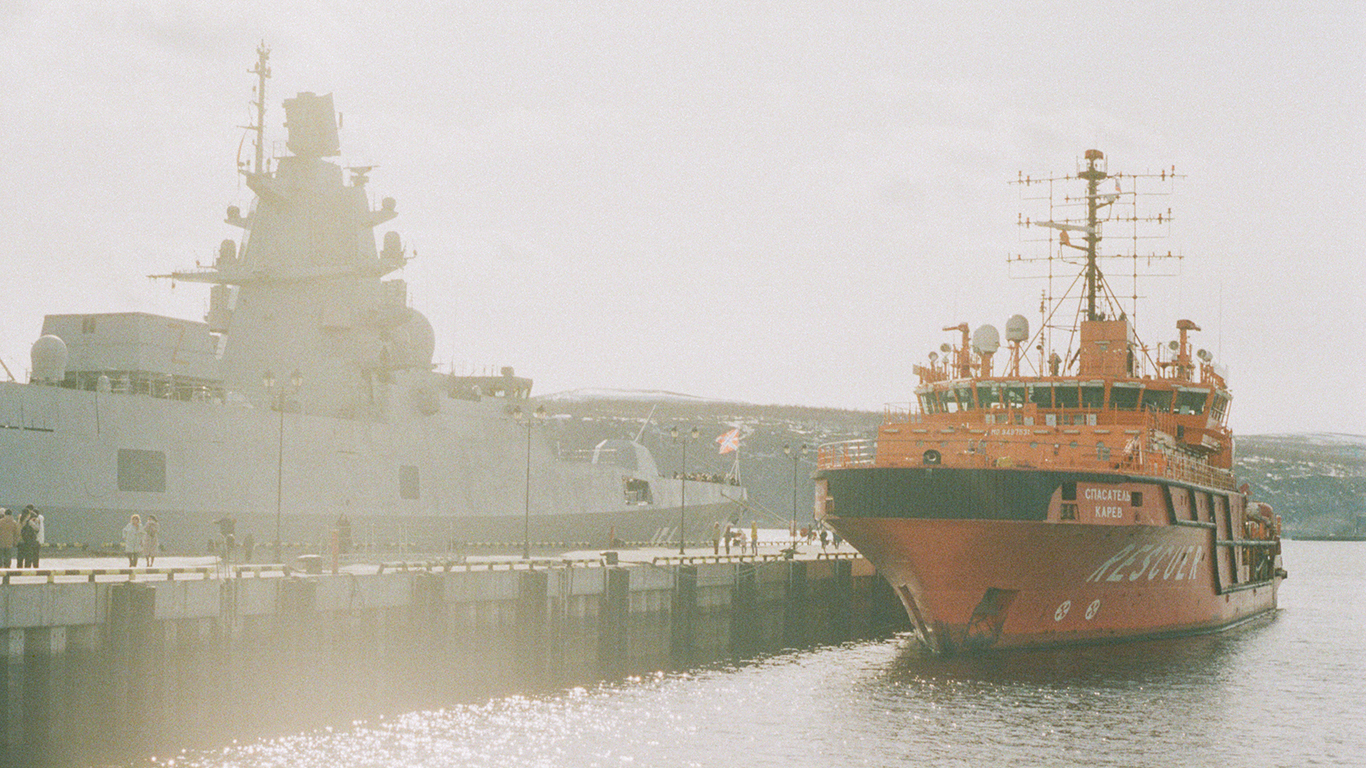
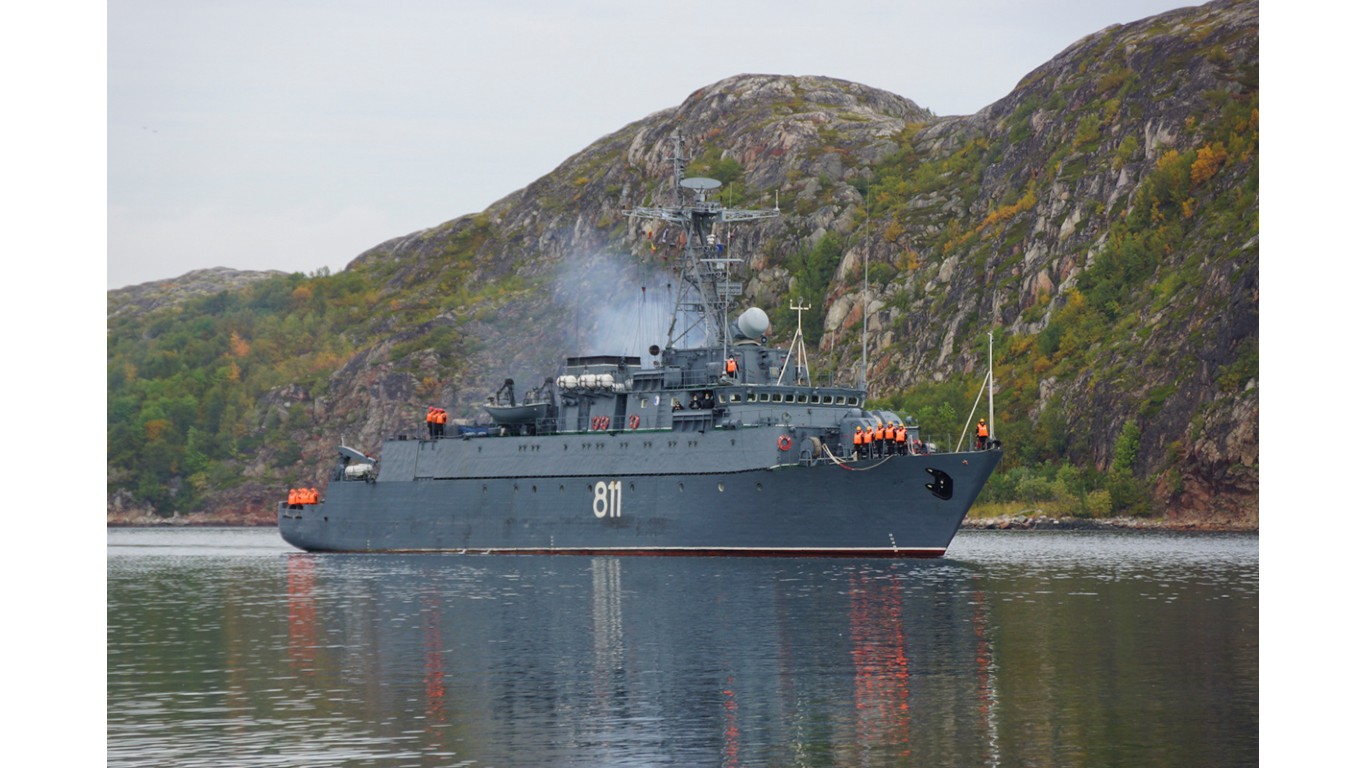
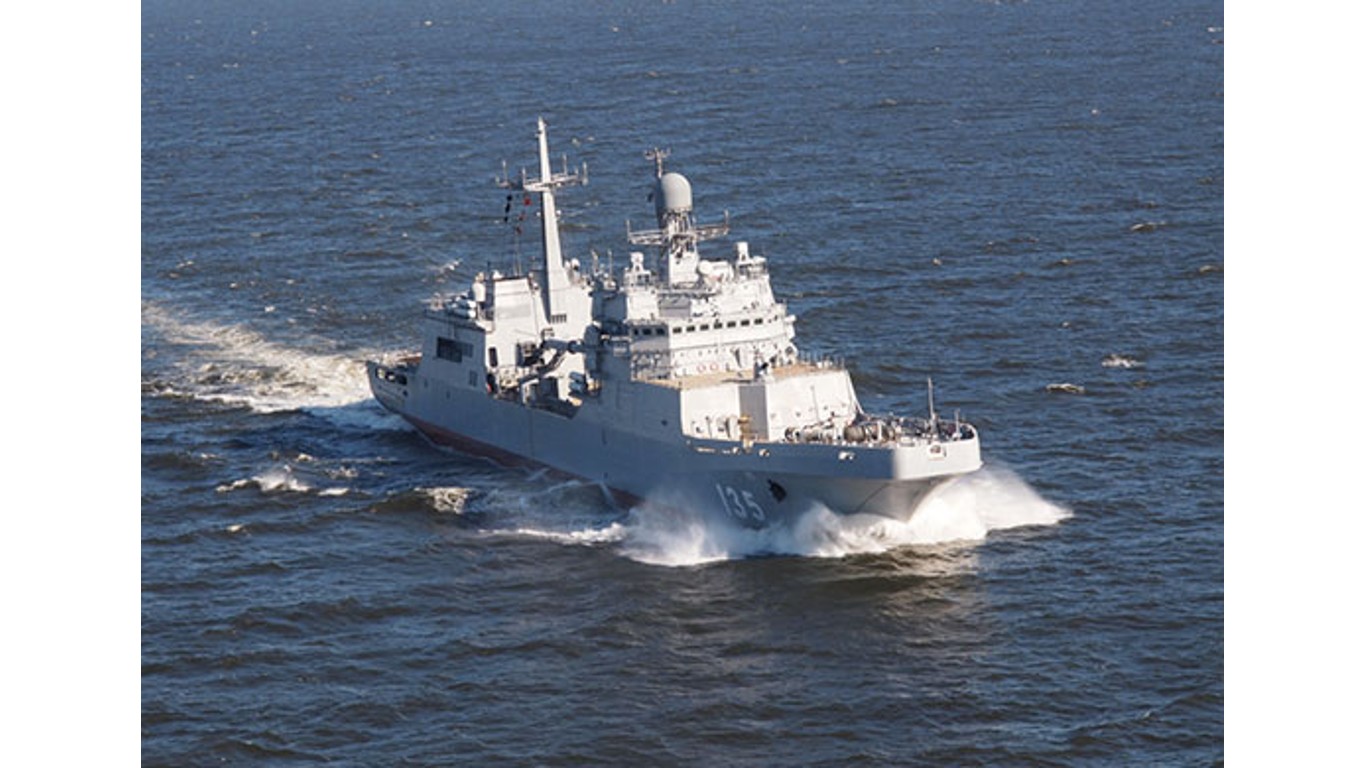
 24/7 Wall St.
24/7 Wall St.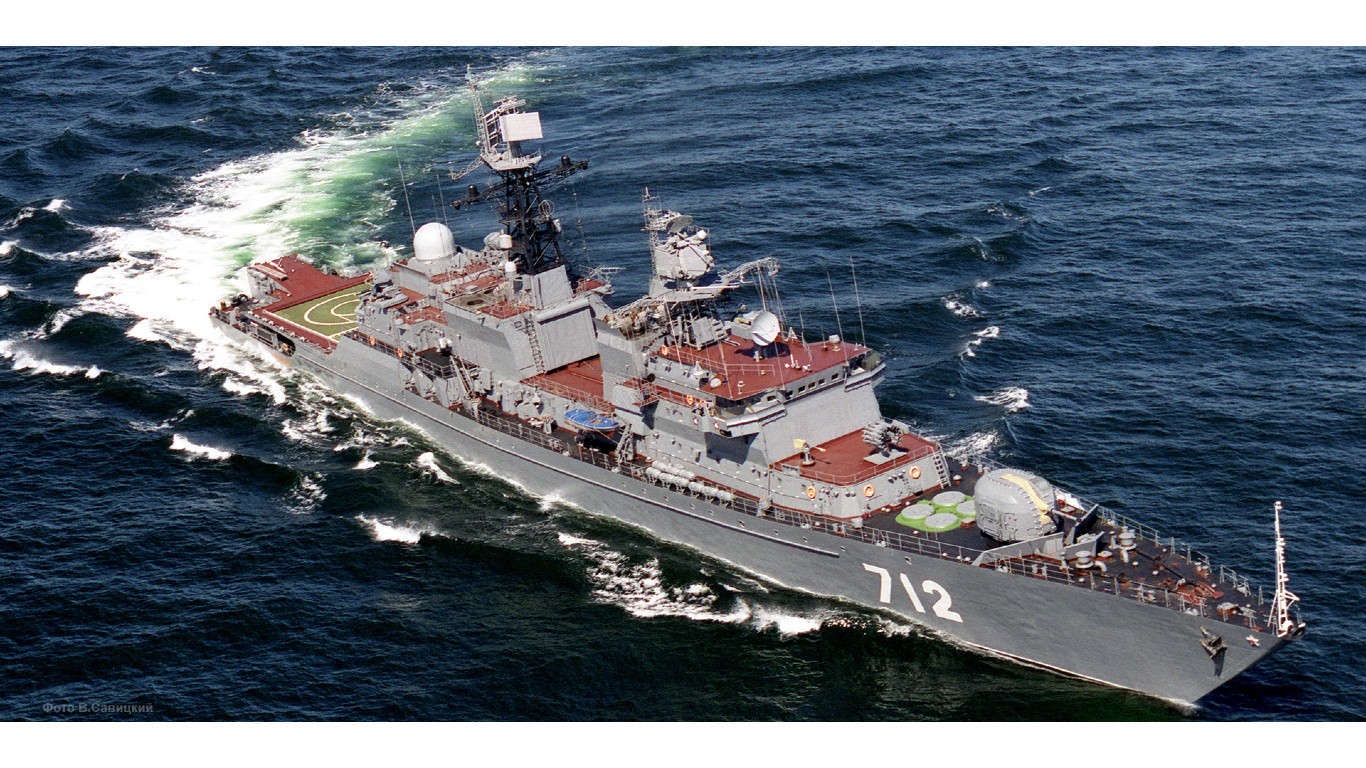
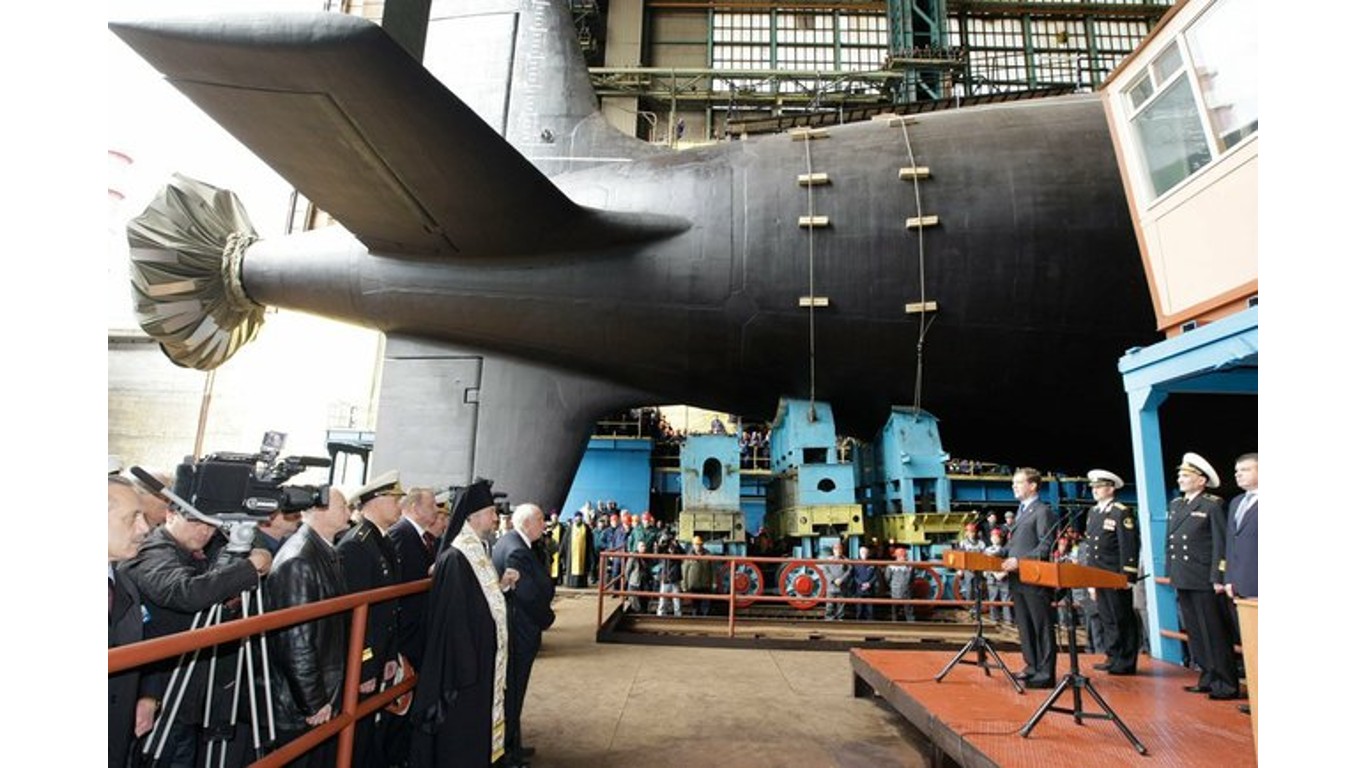
 24/7 Wall St.
24/7 Wall St.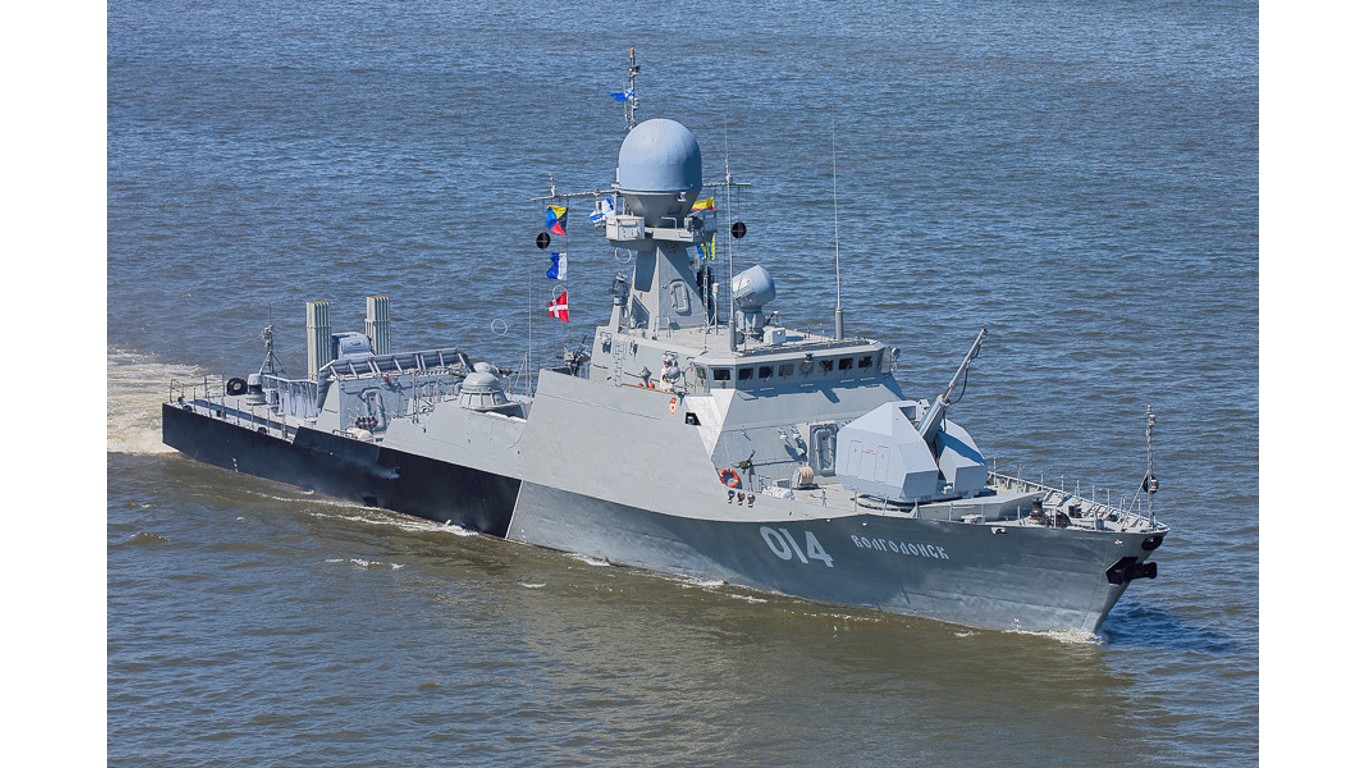
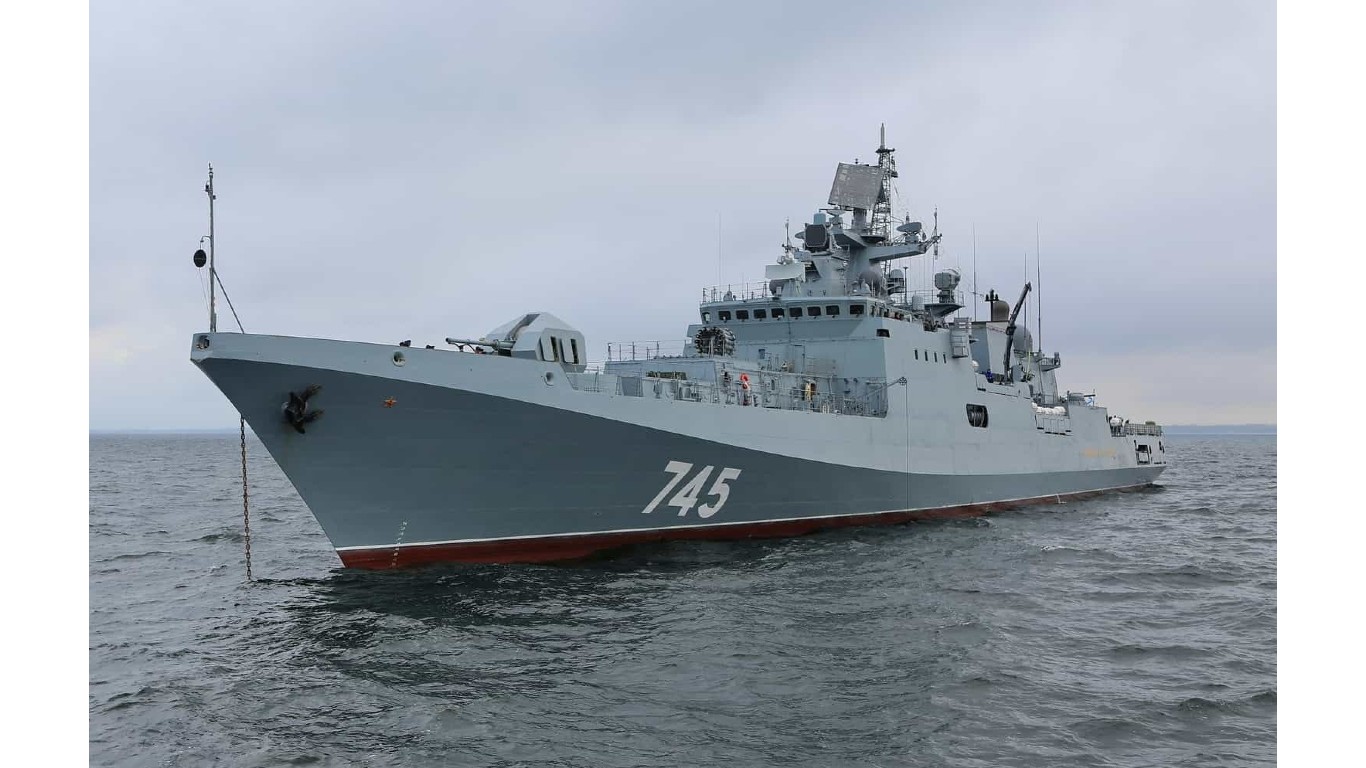
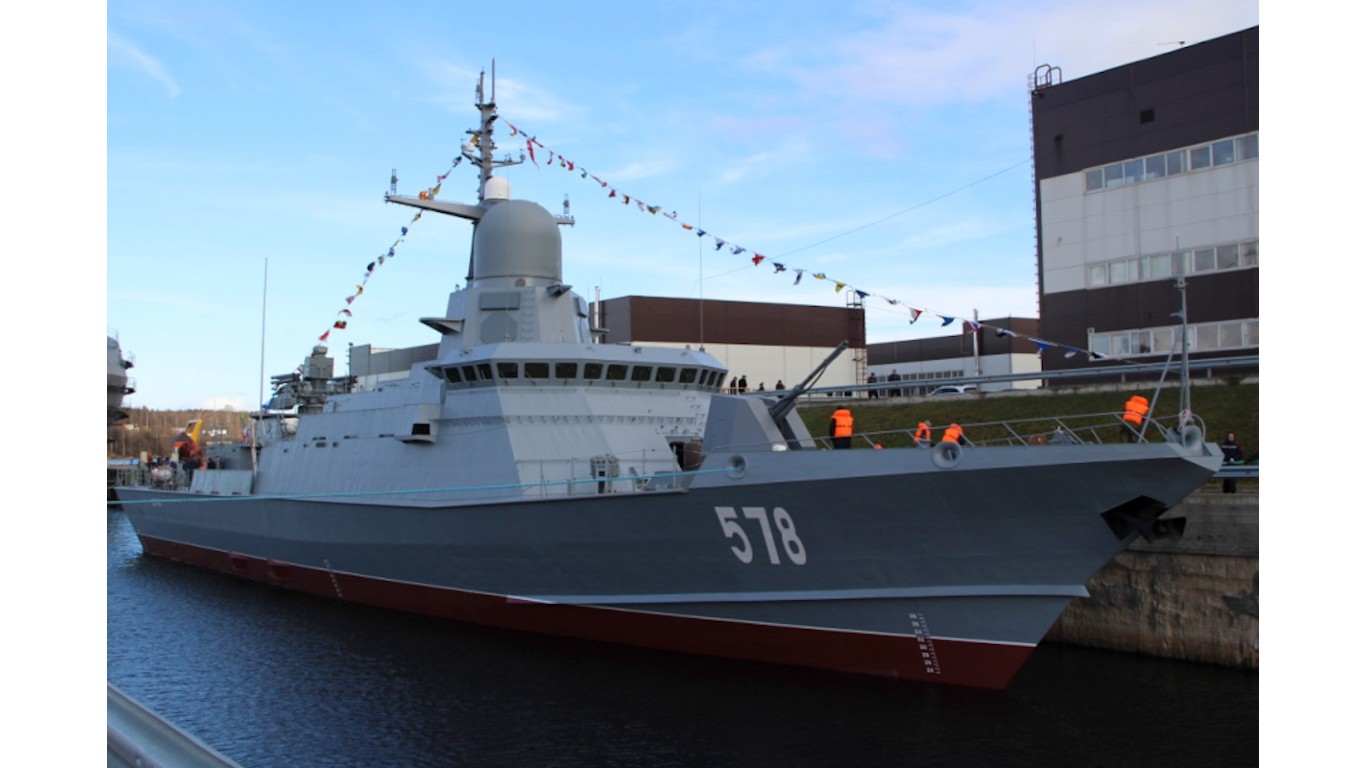
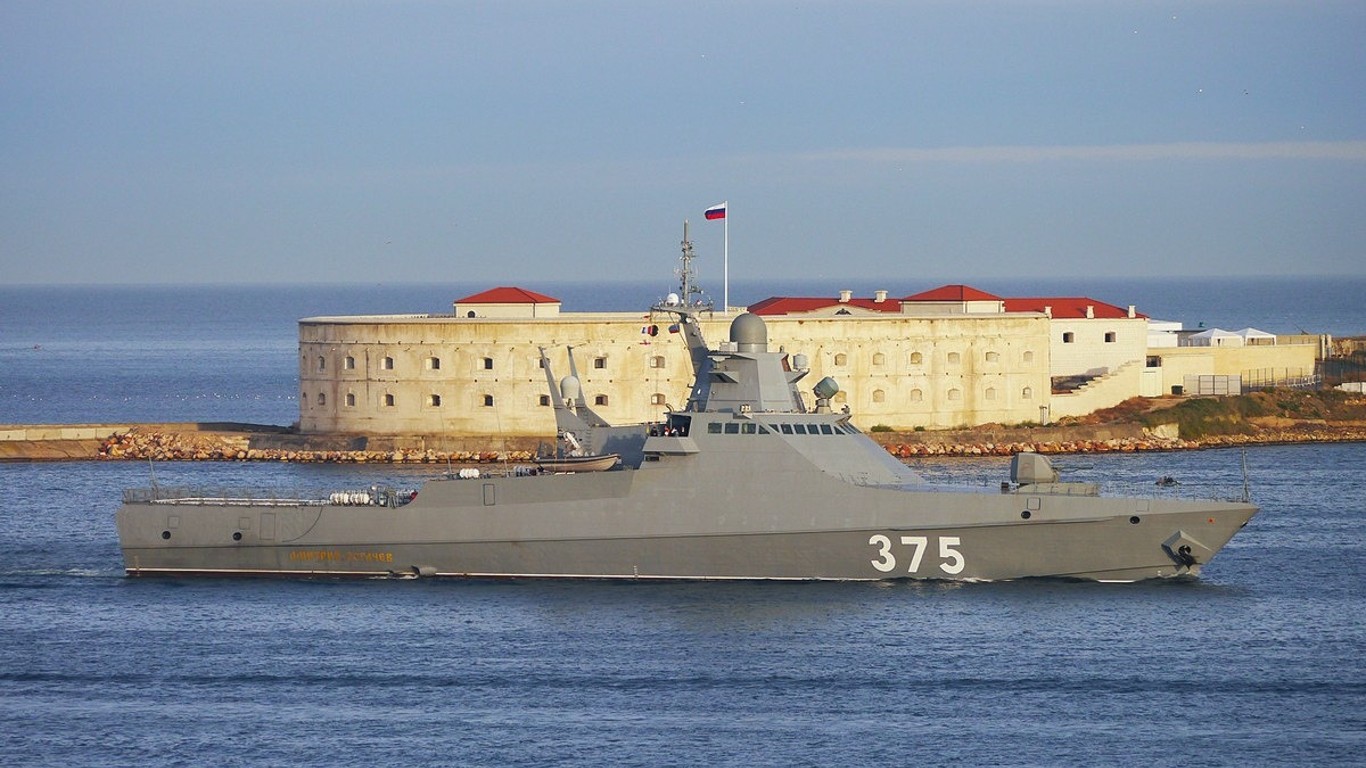
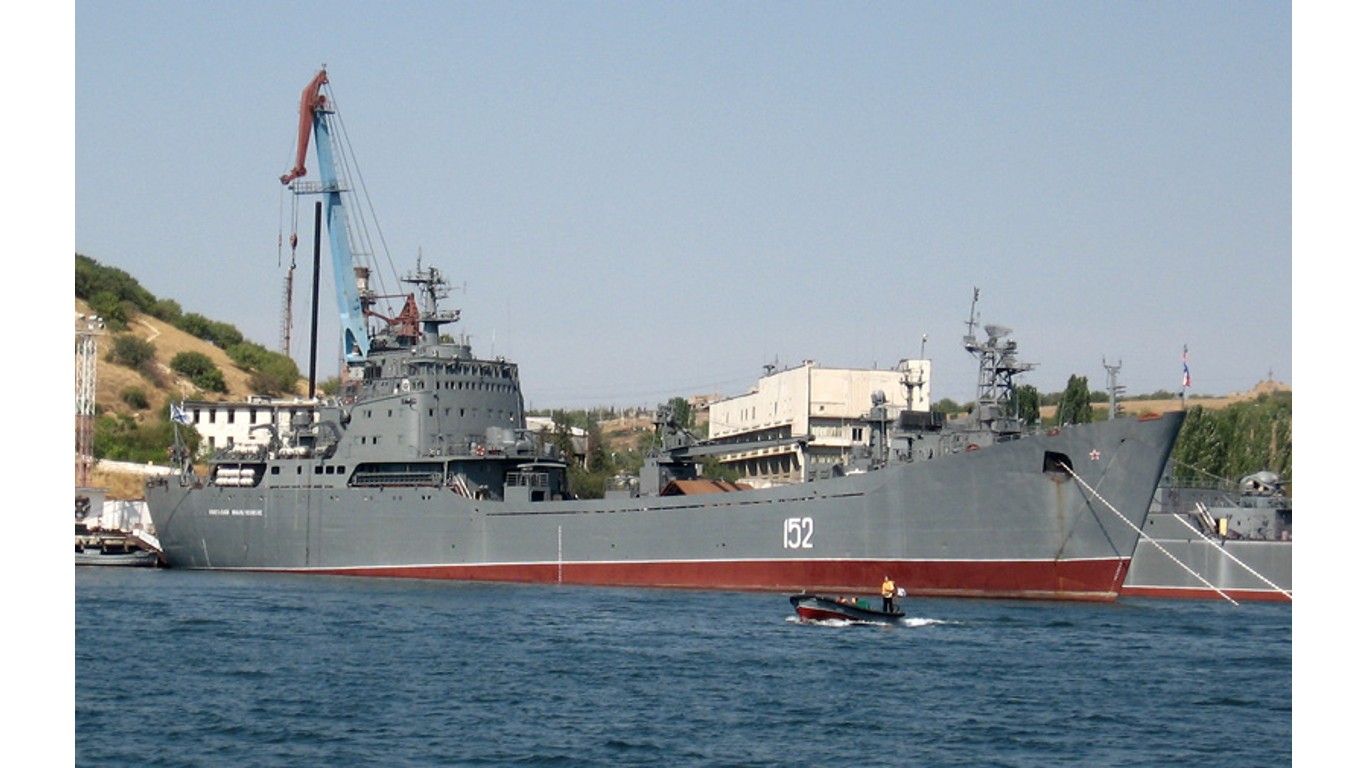
 24/7 Wall St.
24/7 Wall St.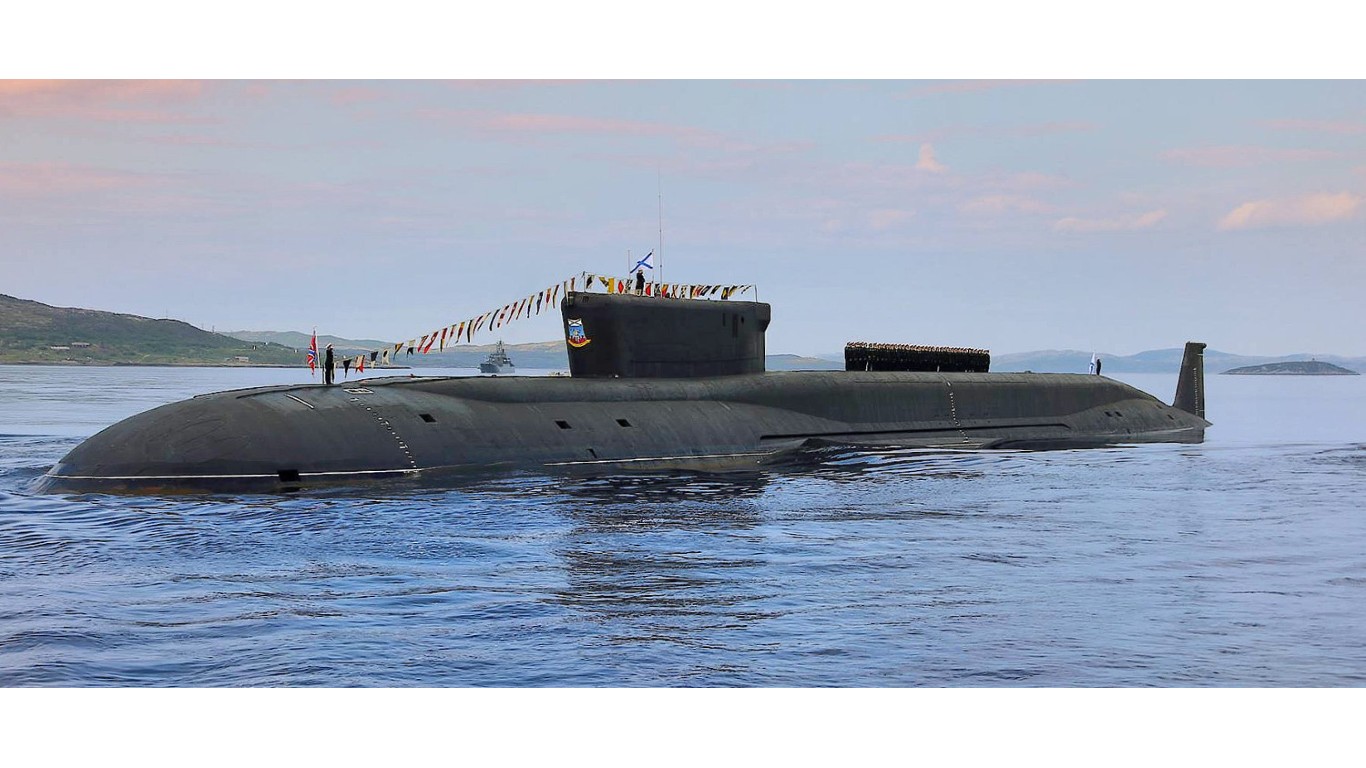
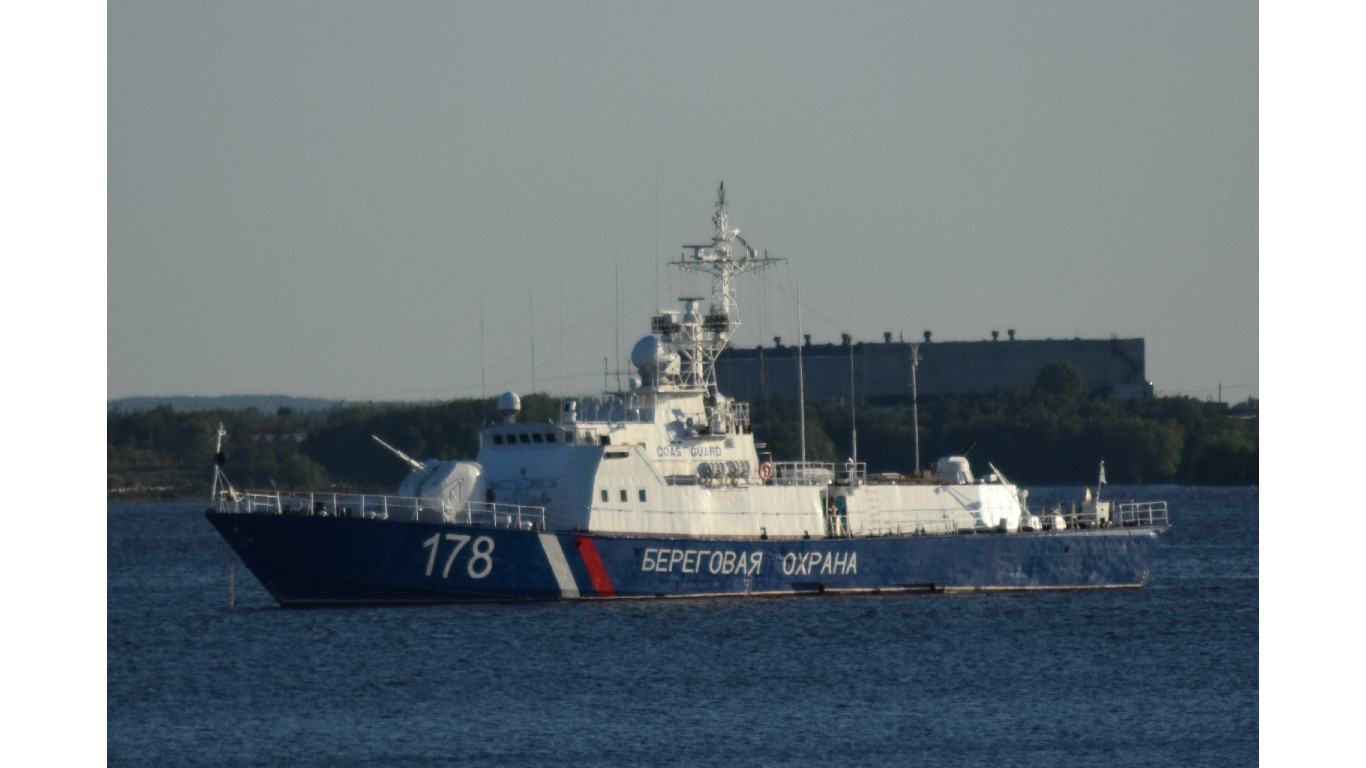
 24/7 Wall St.
24/7 Wall St.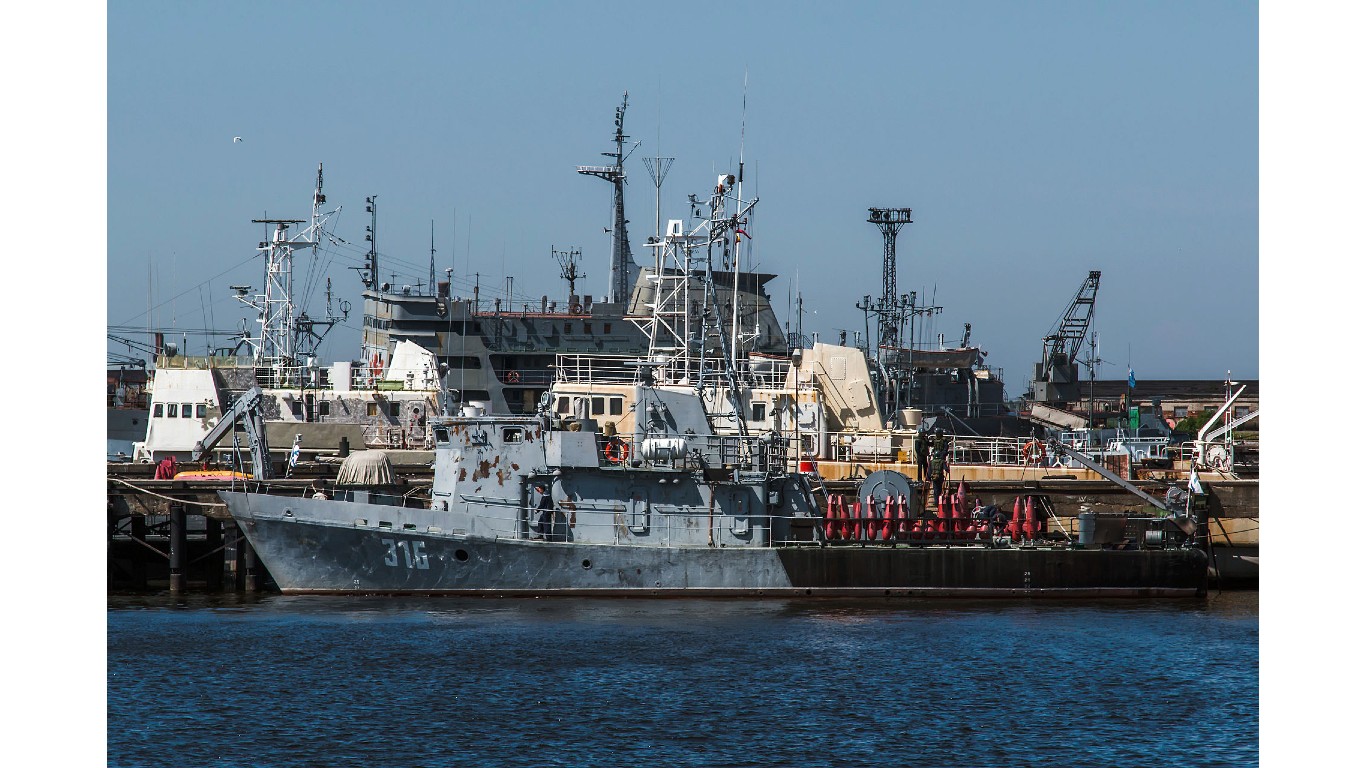

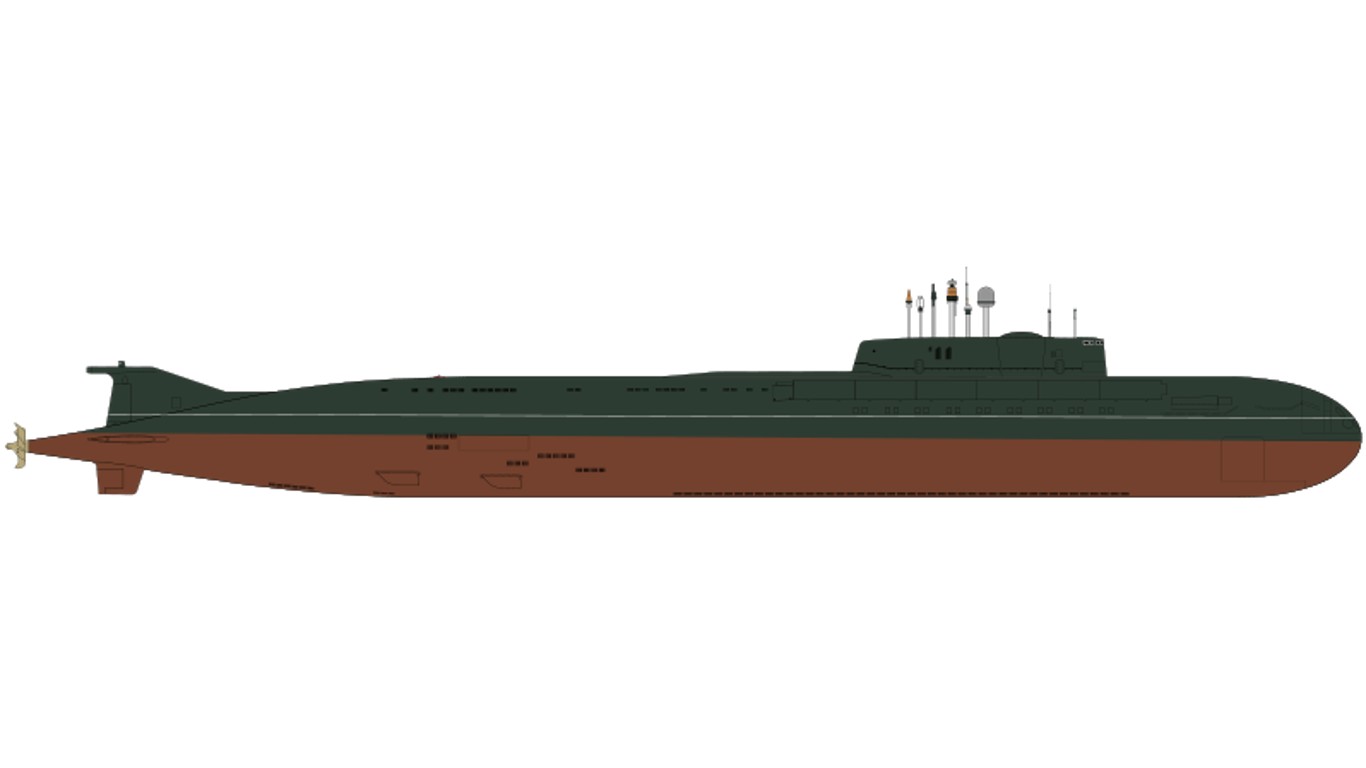
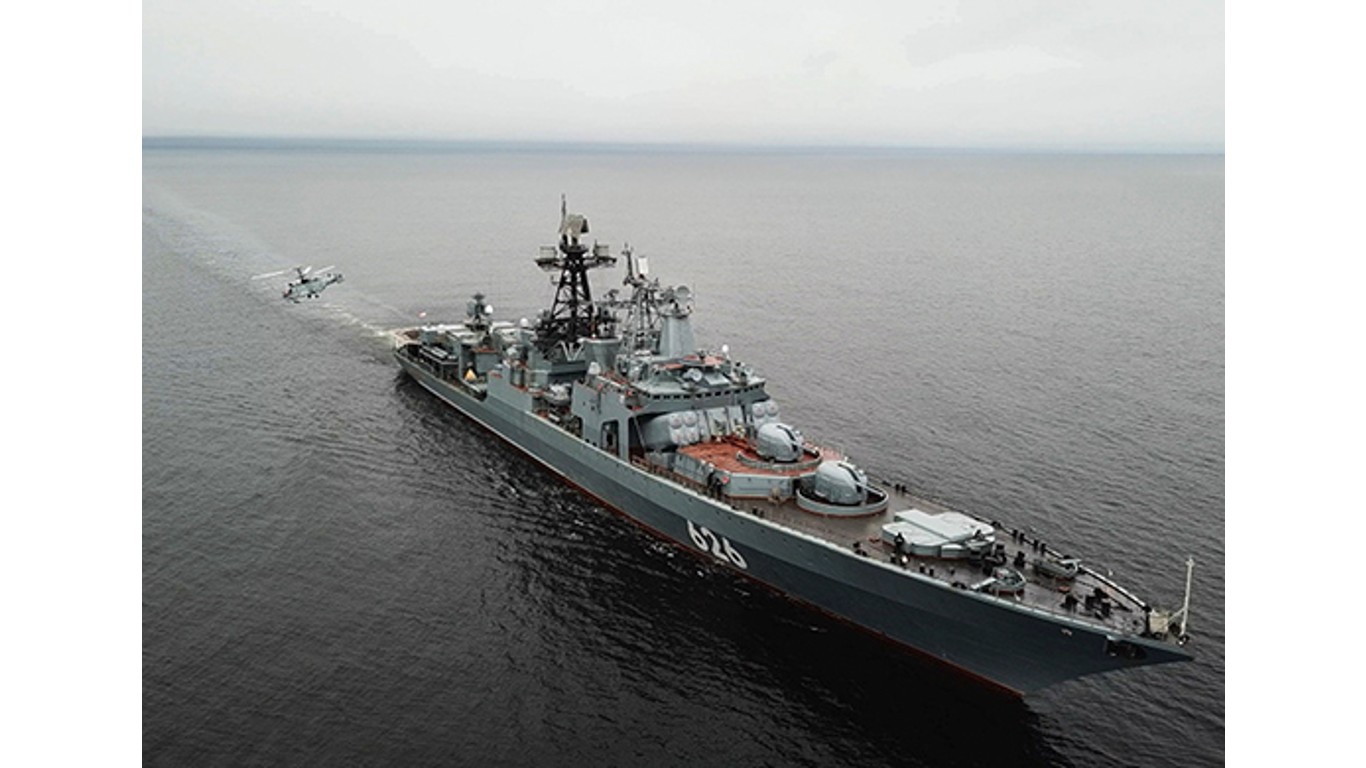
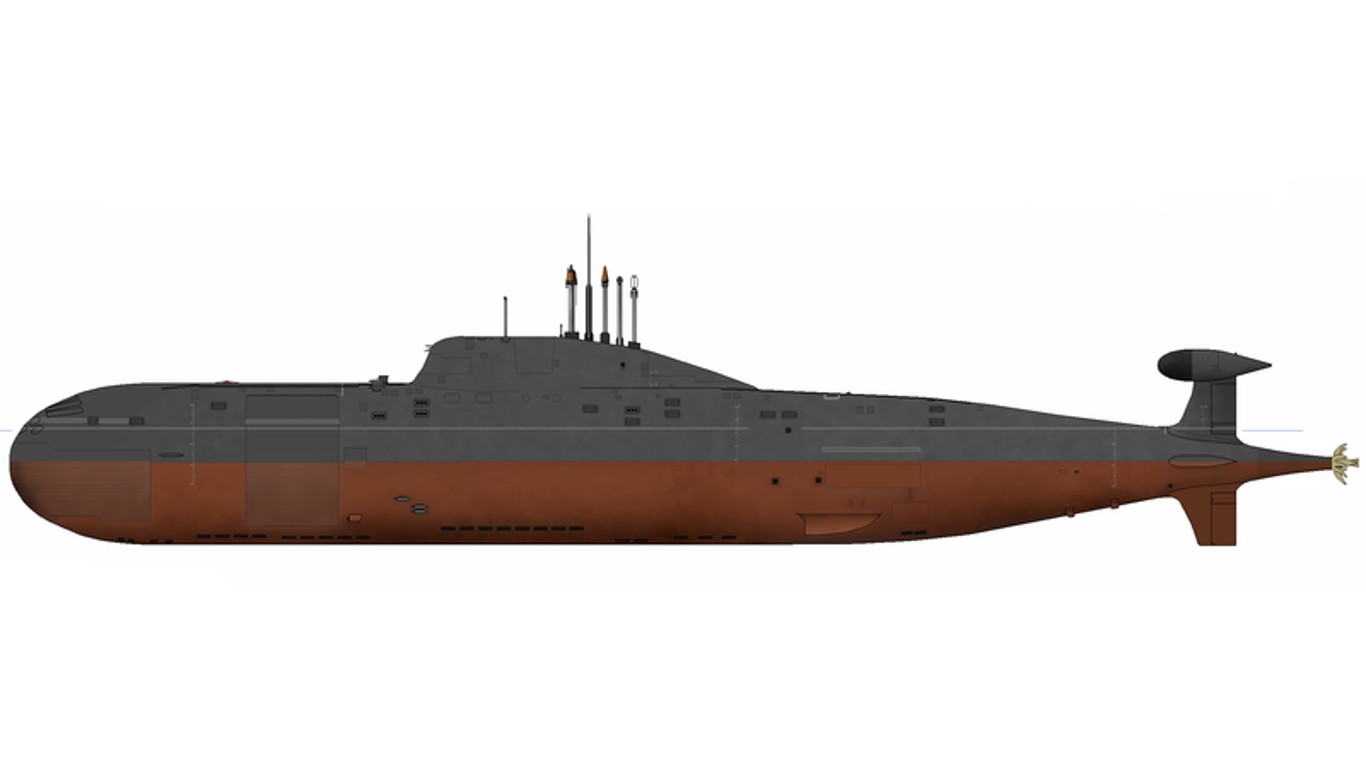
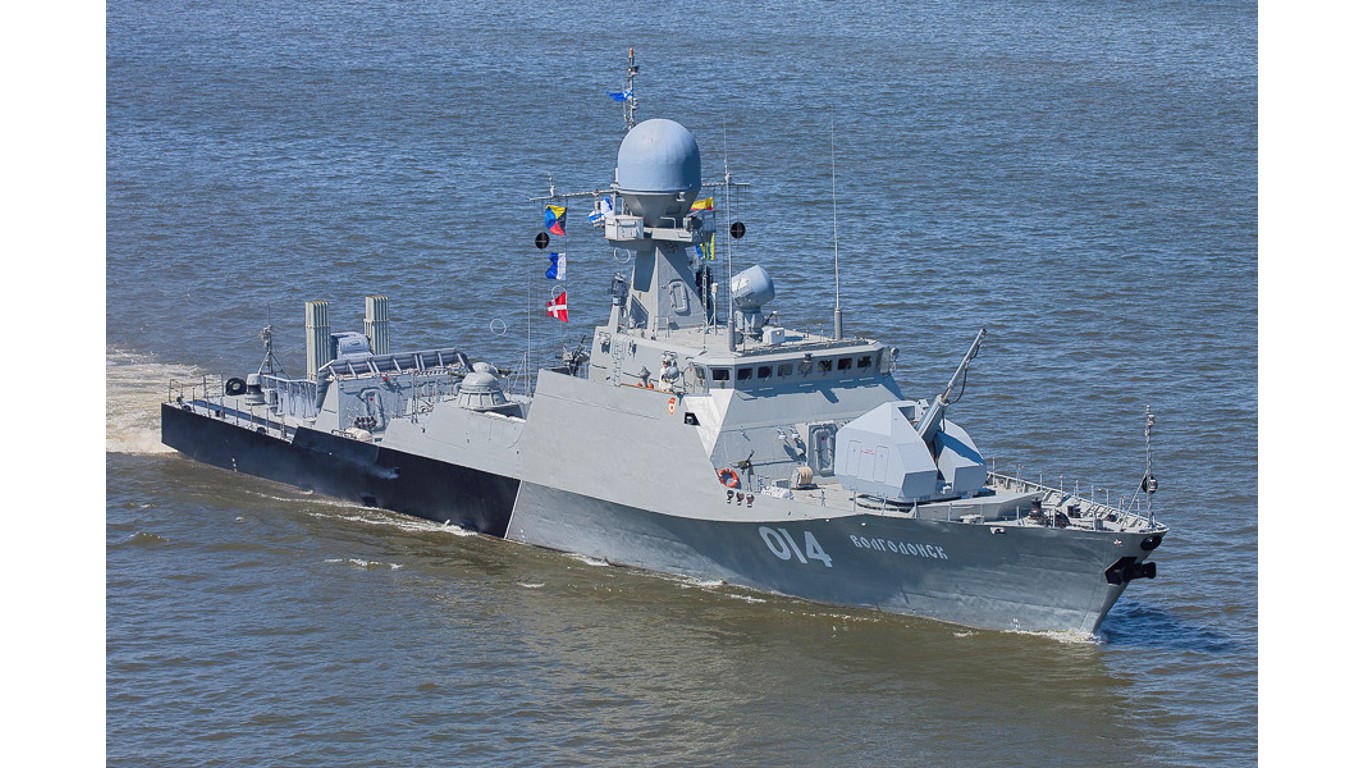
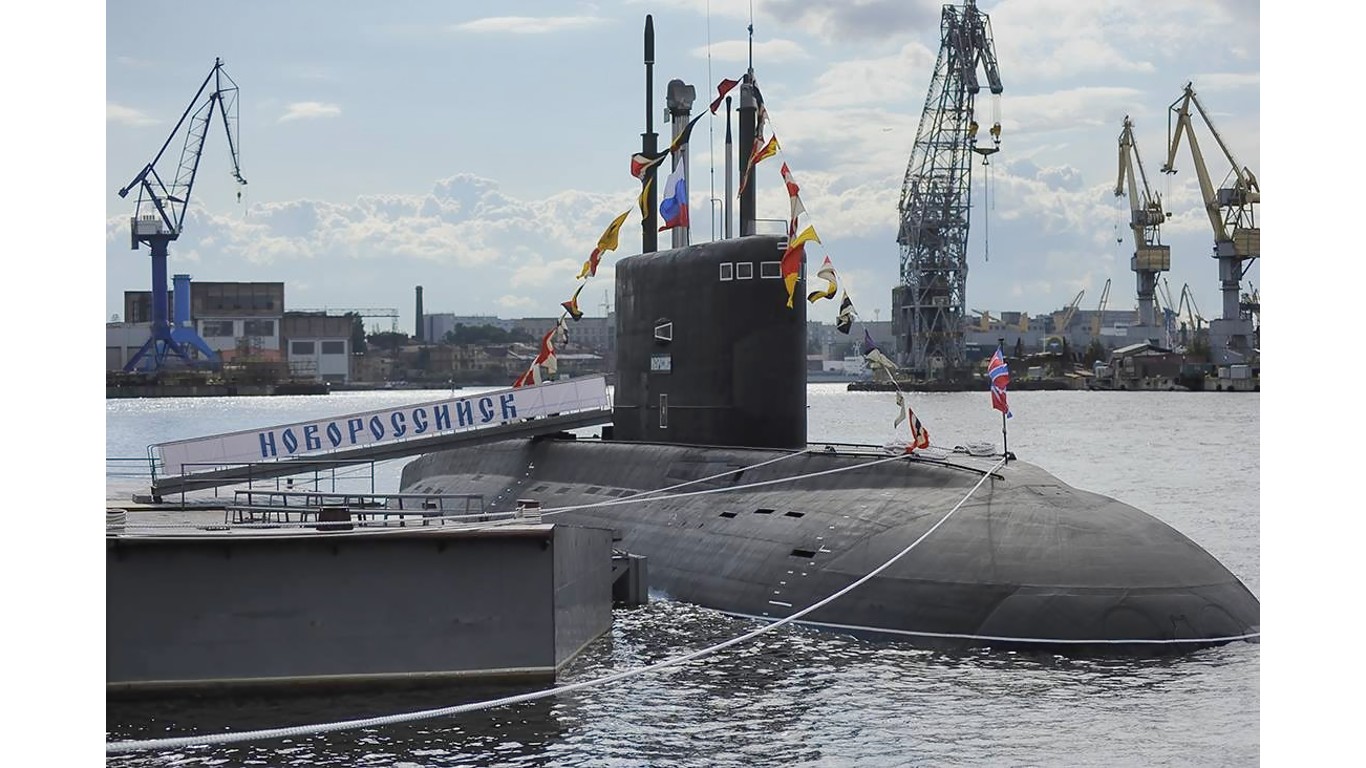
 24/7 Wall St.
24/7 Wall St.